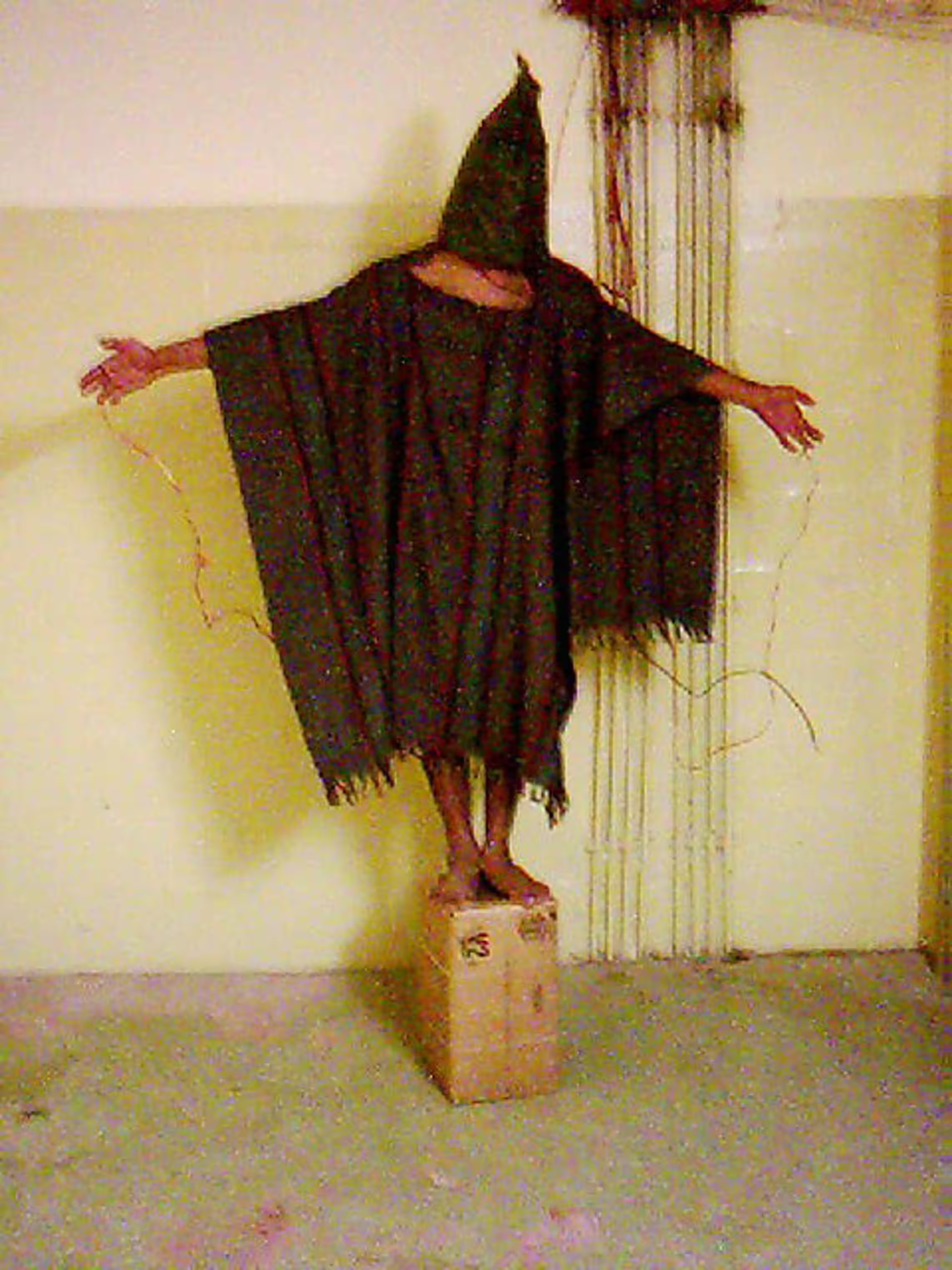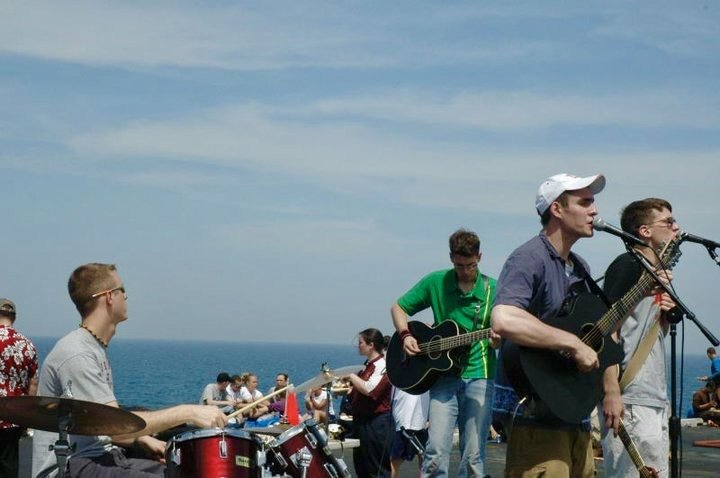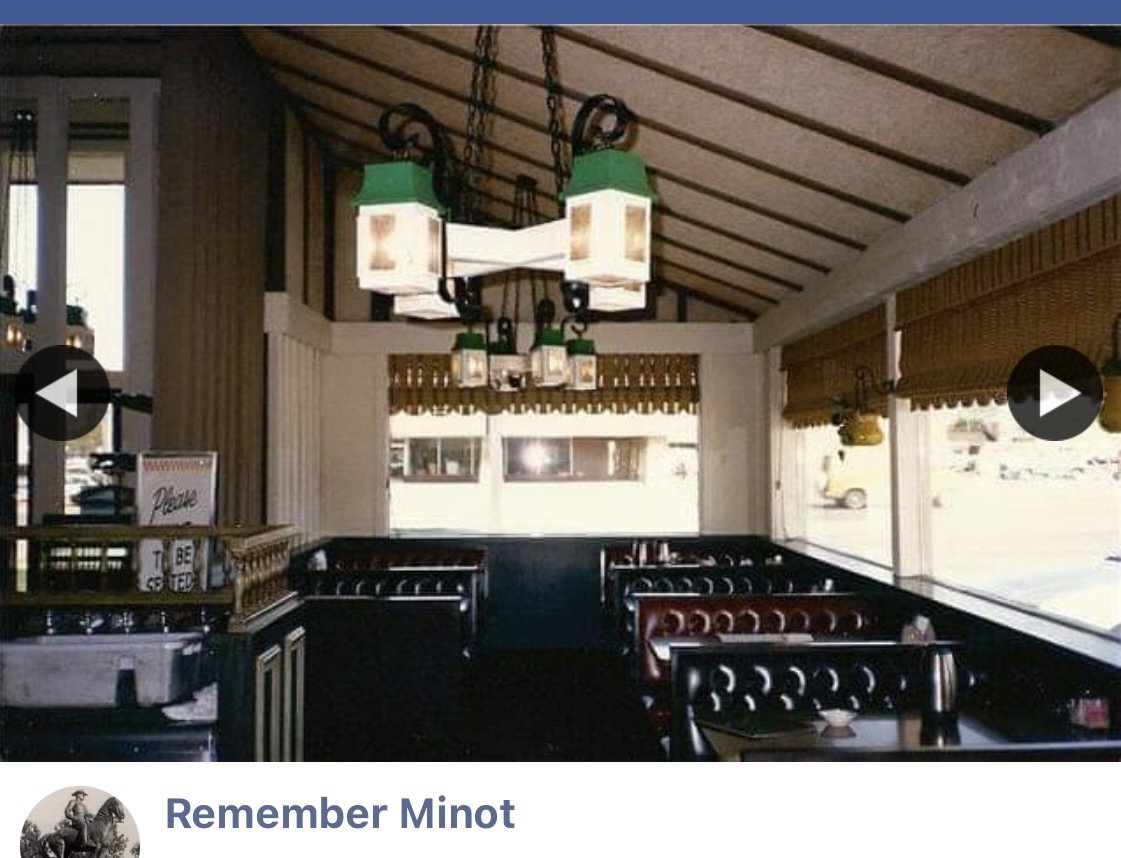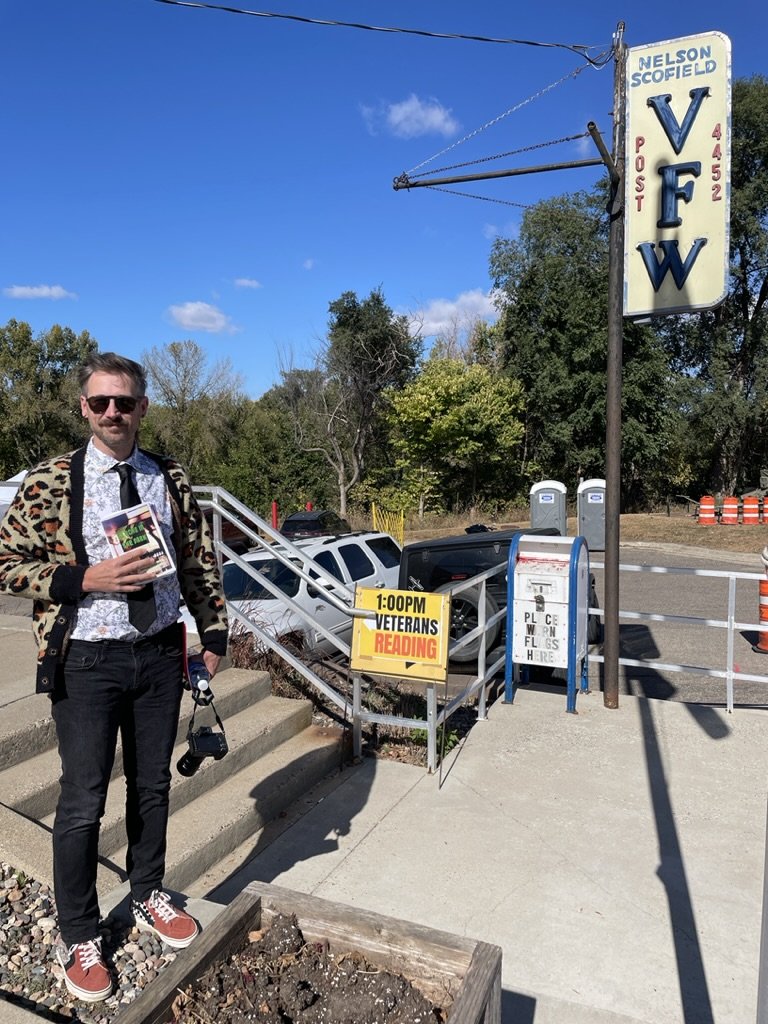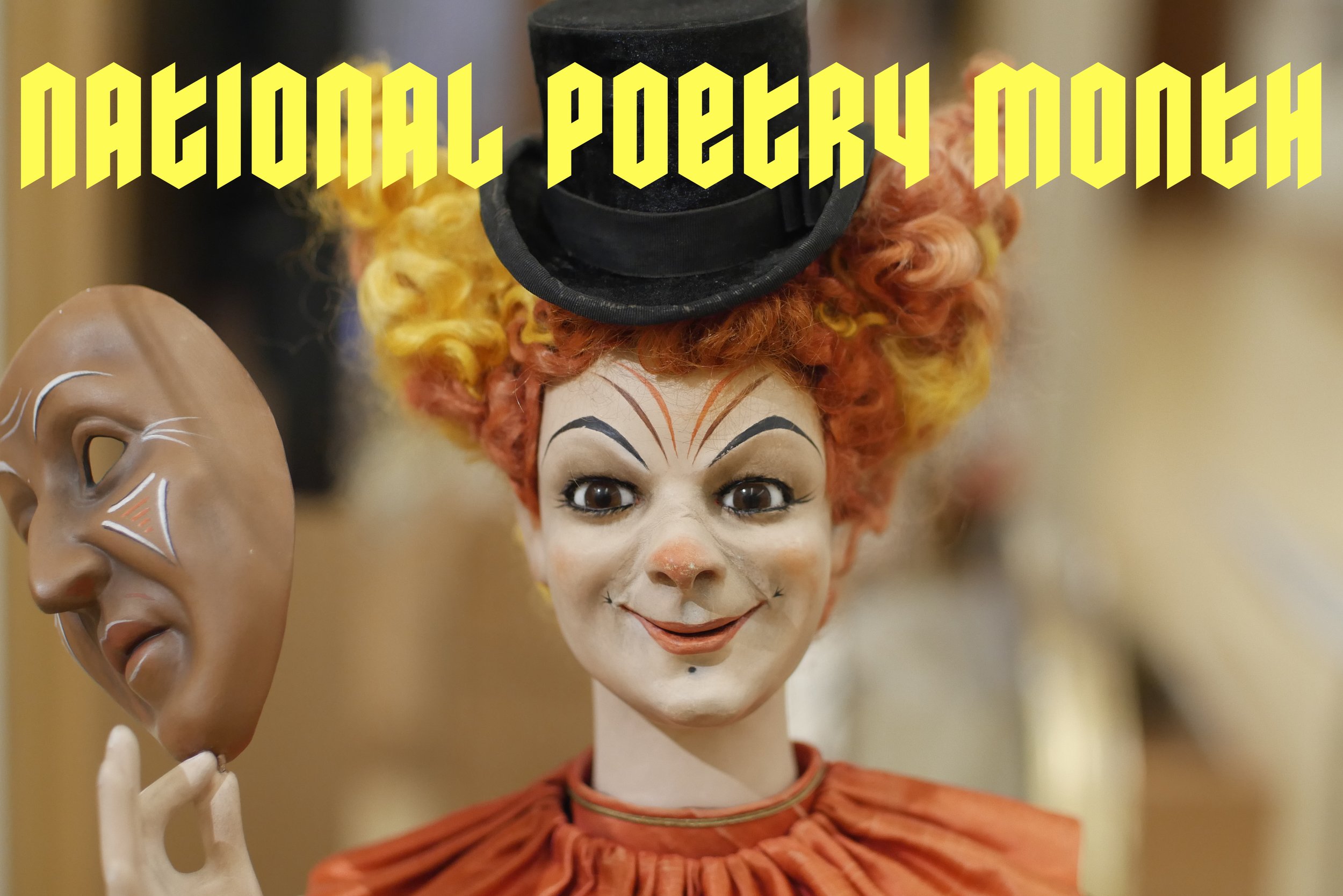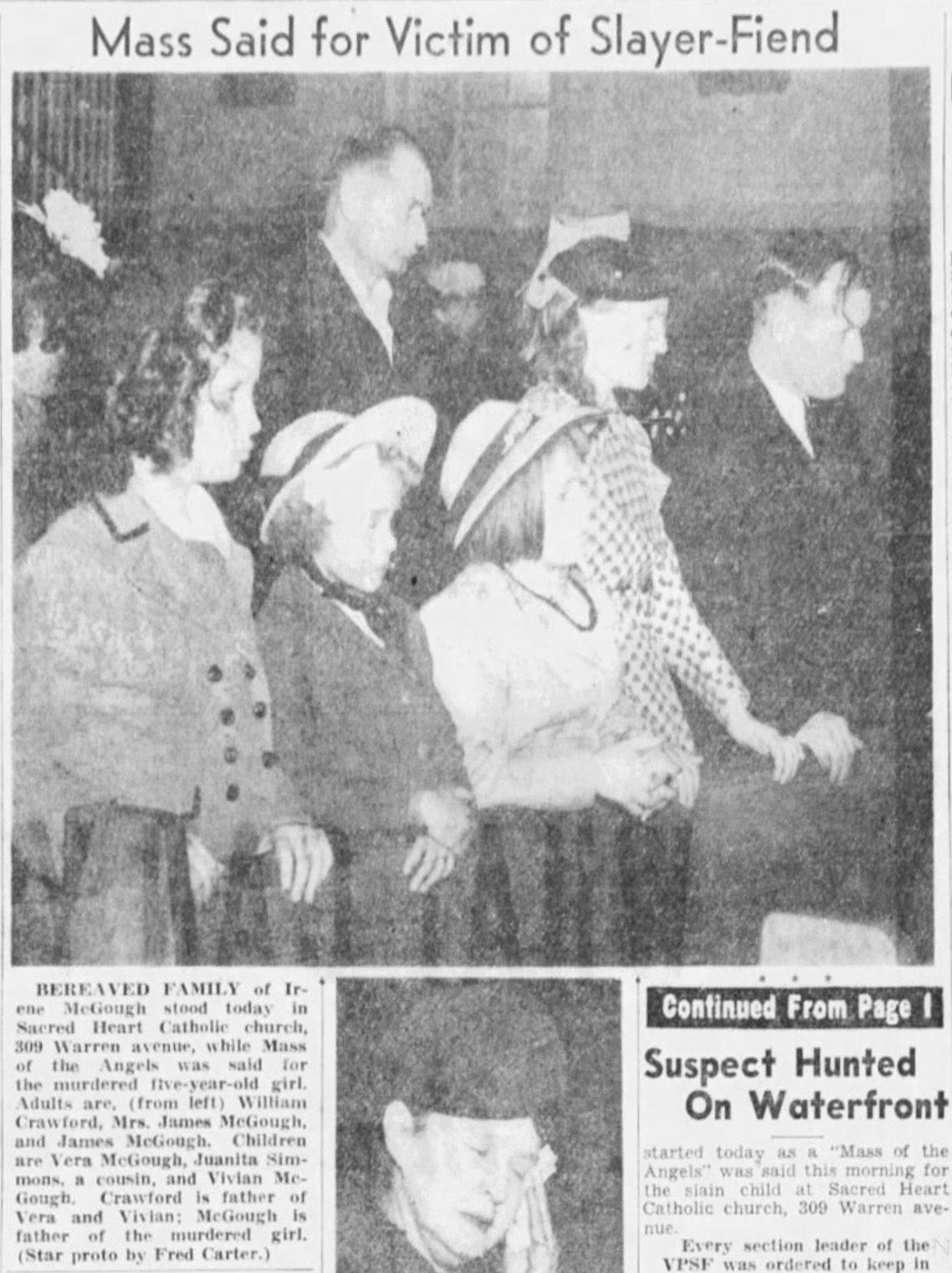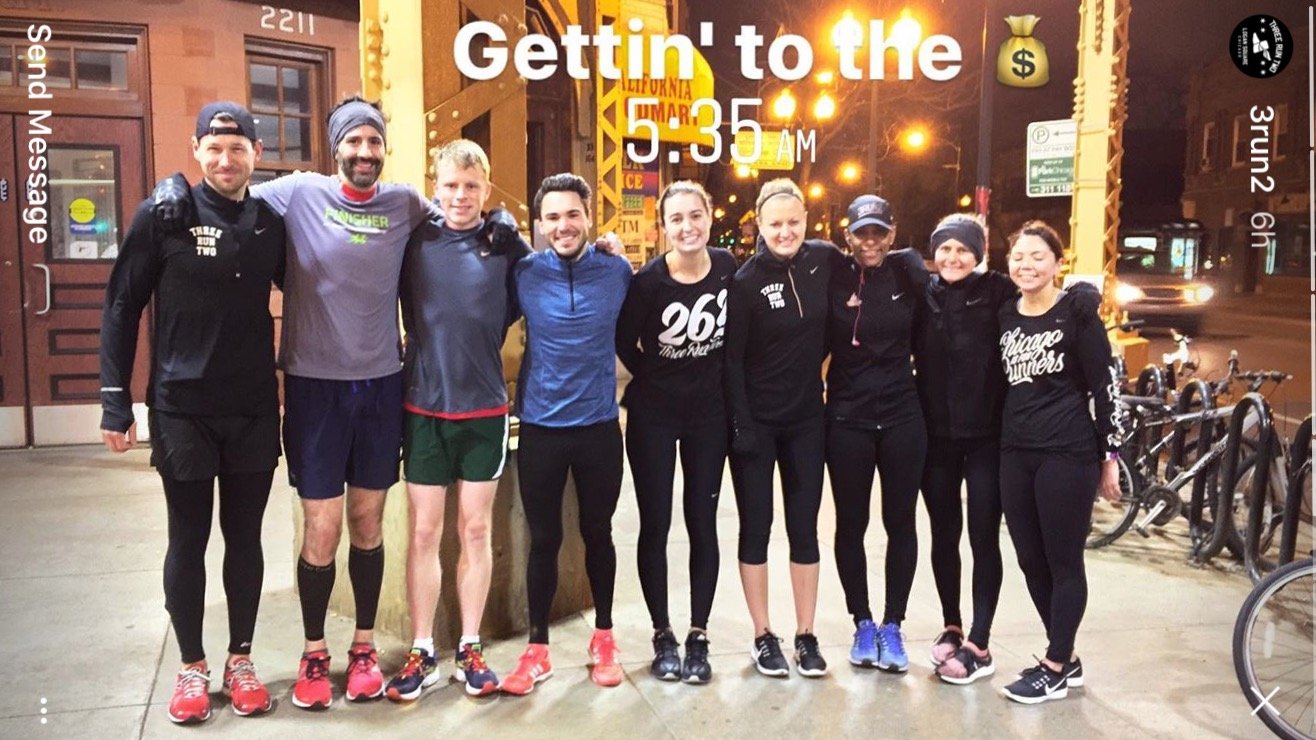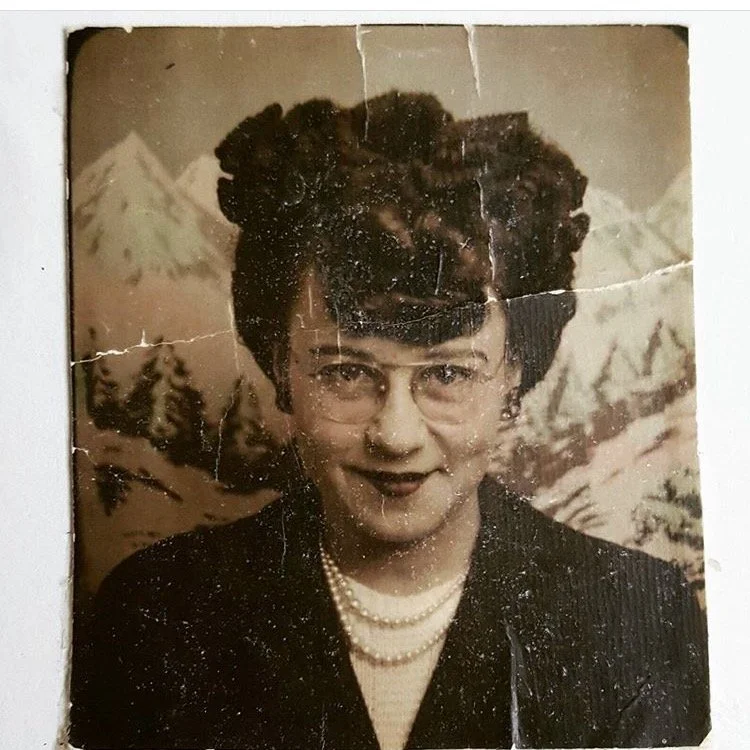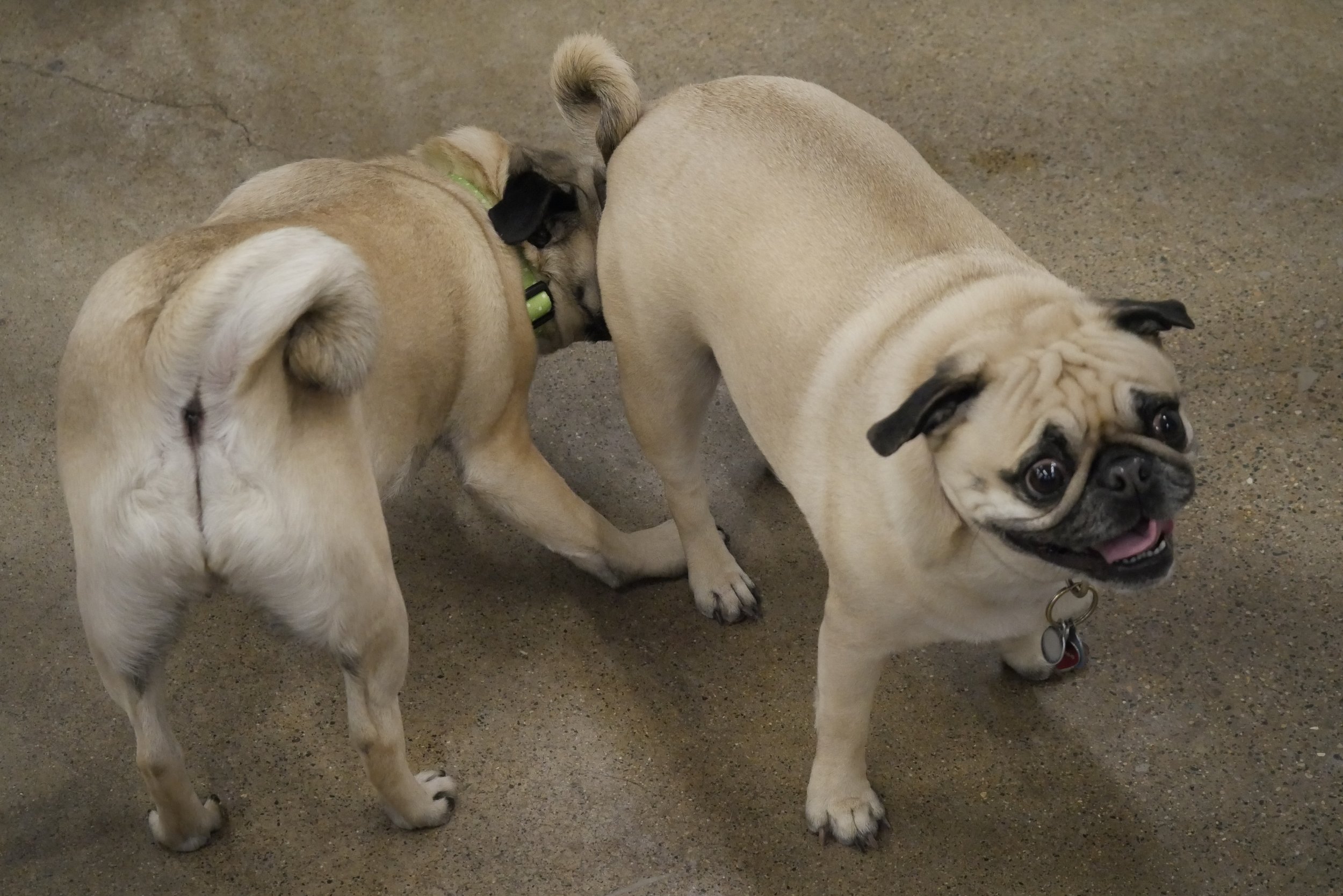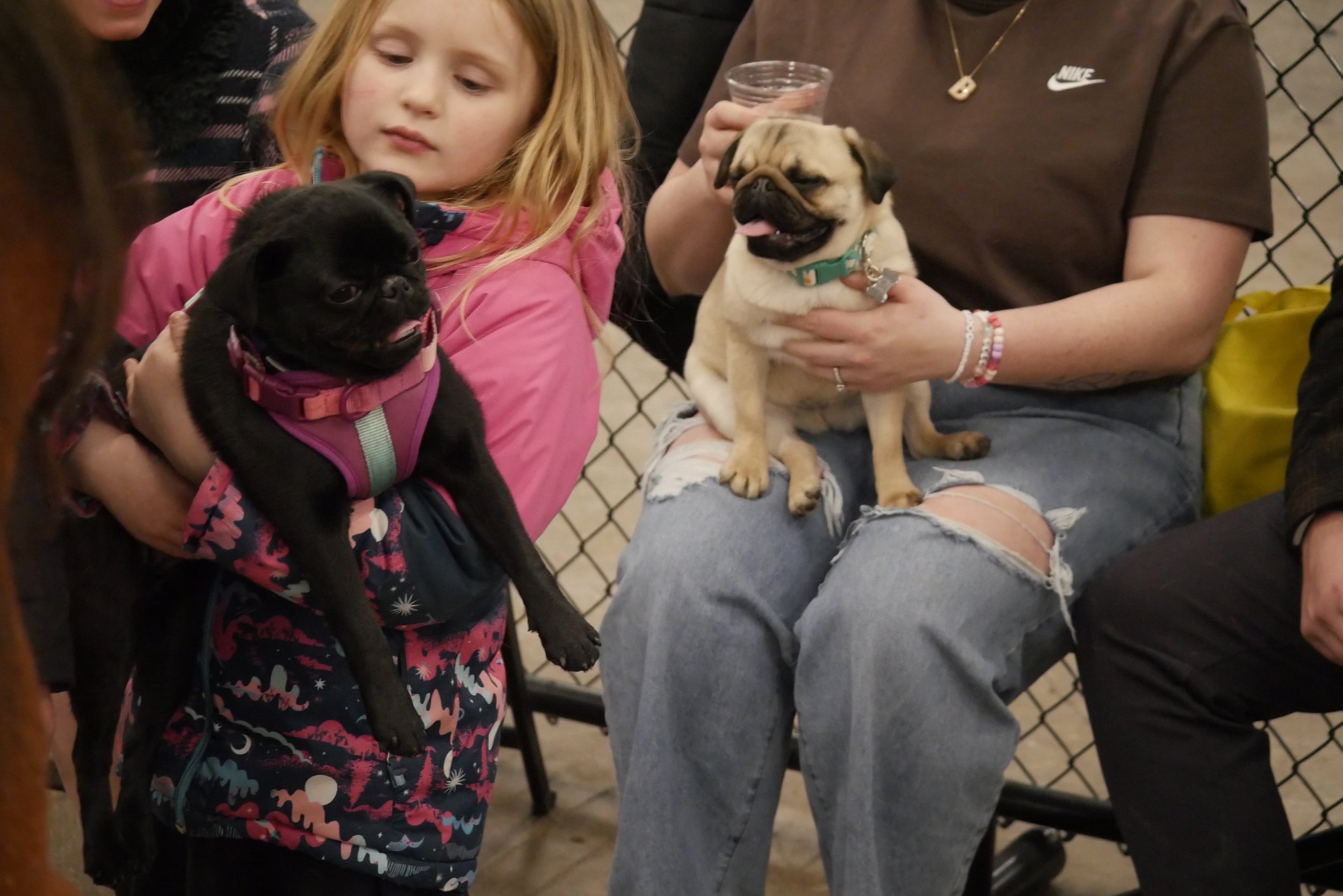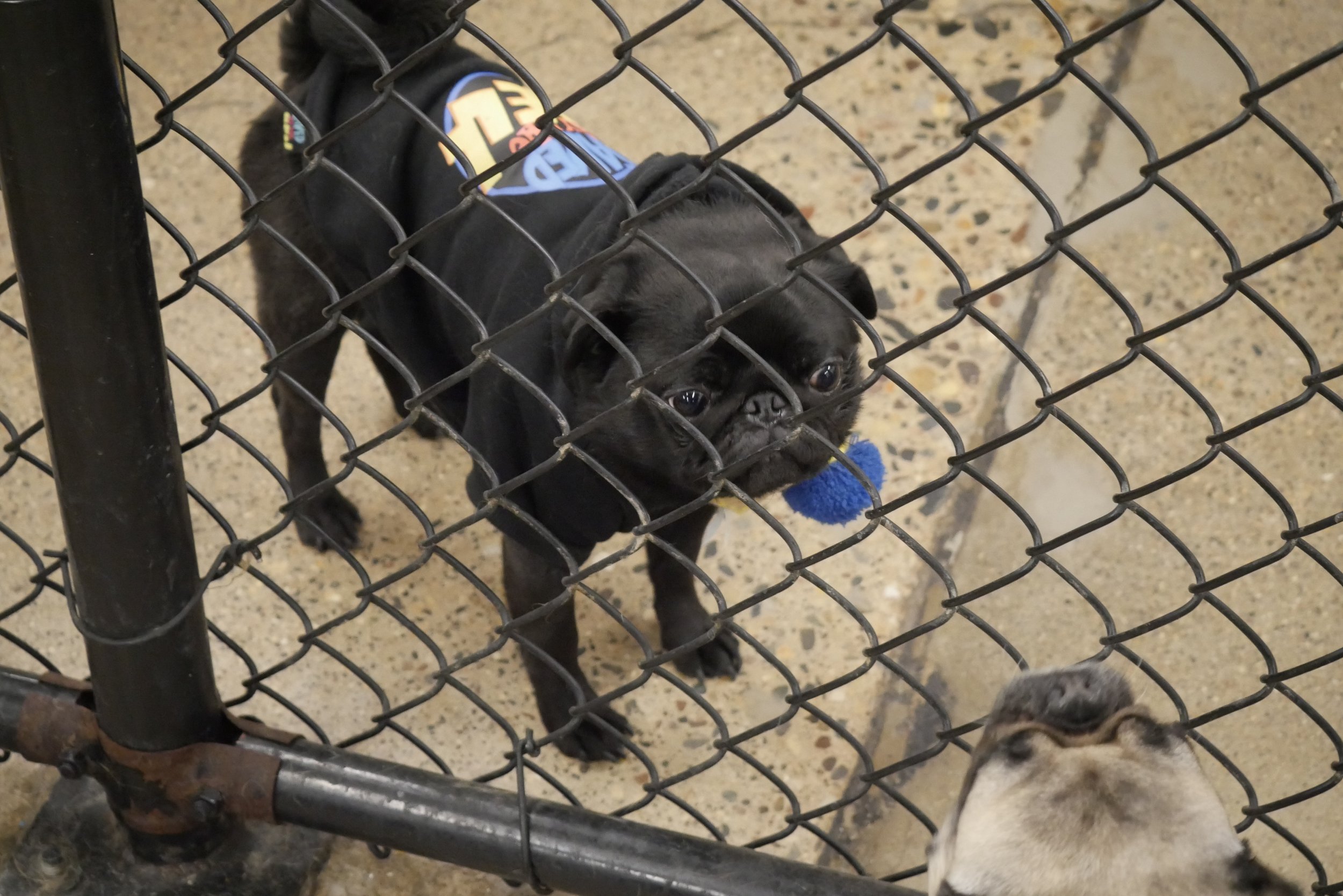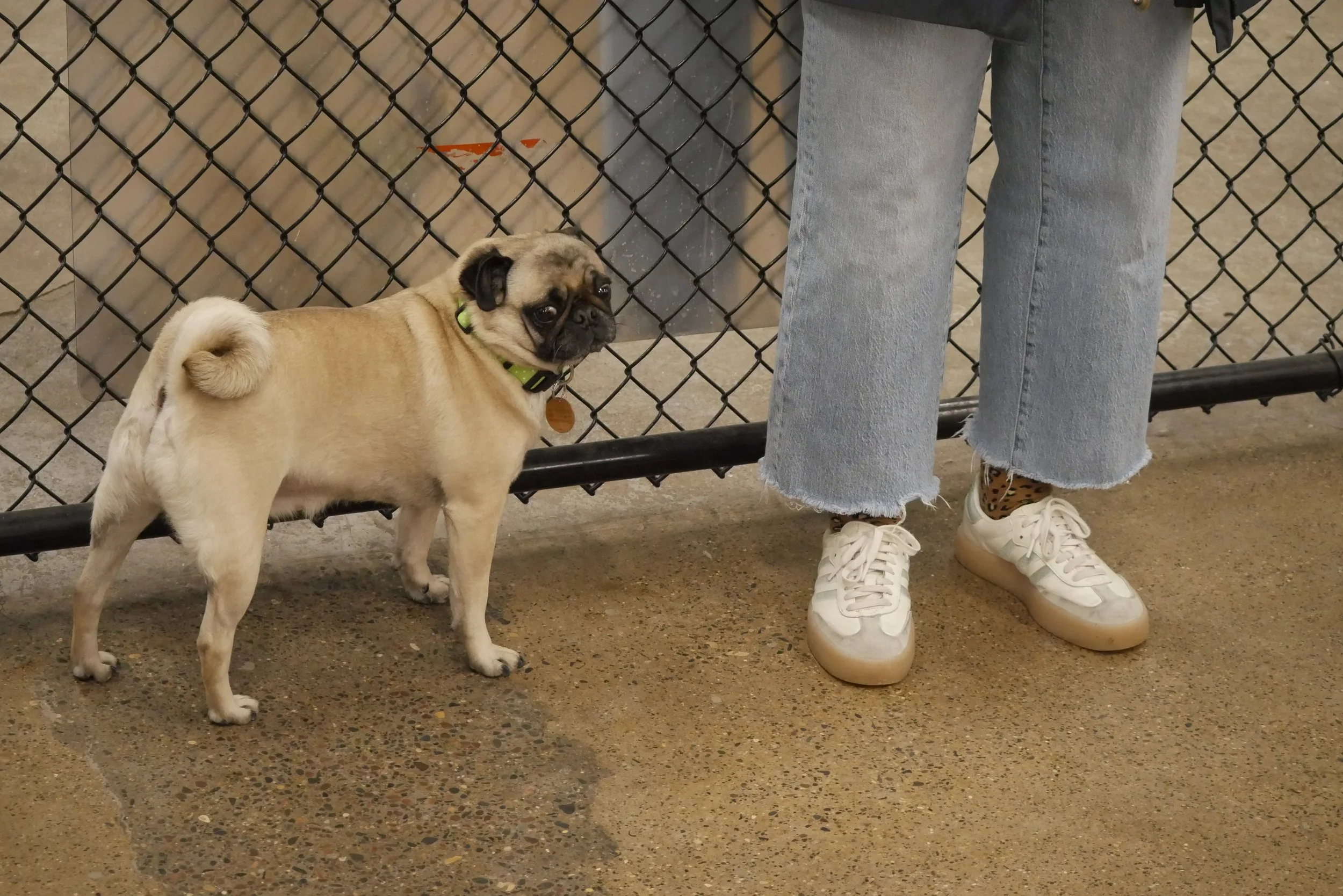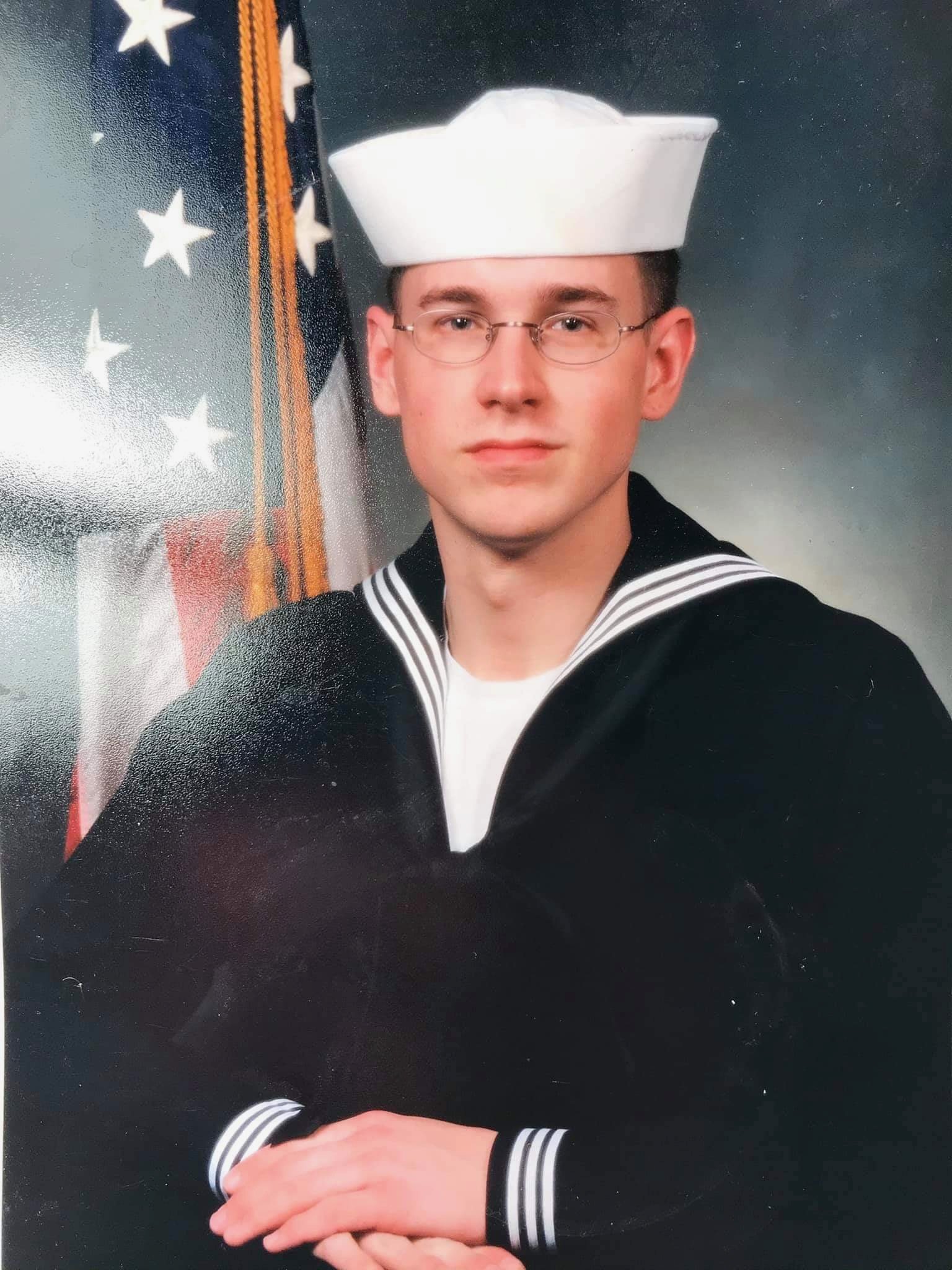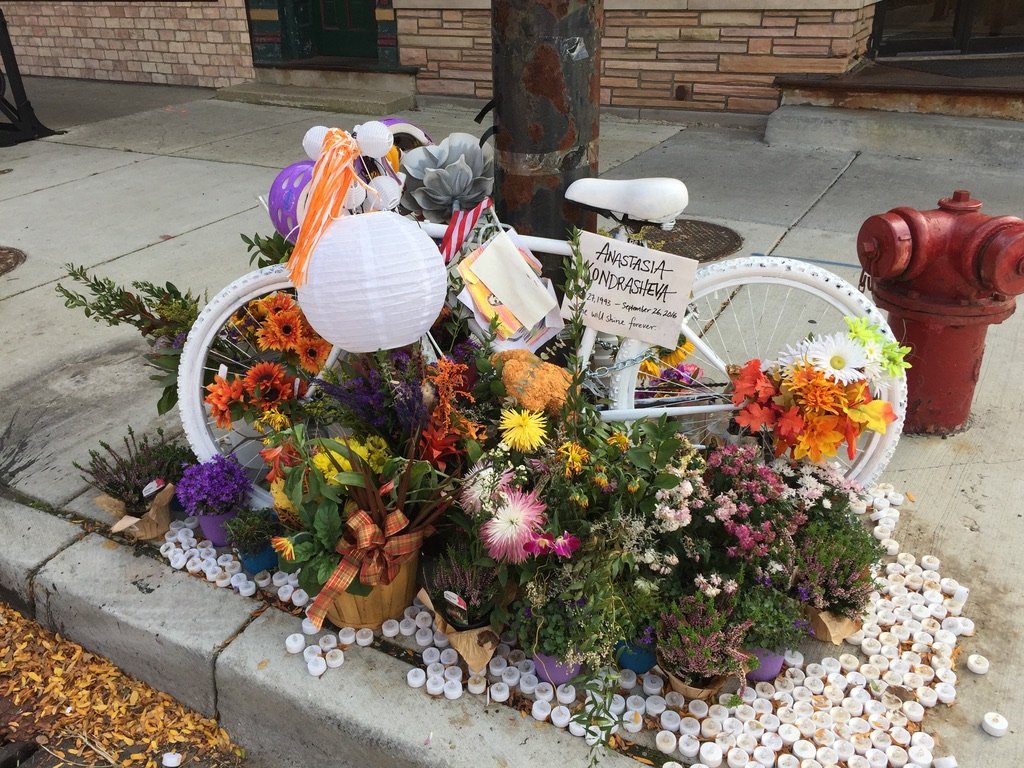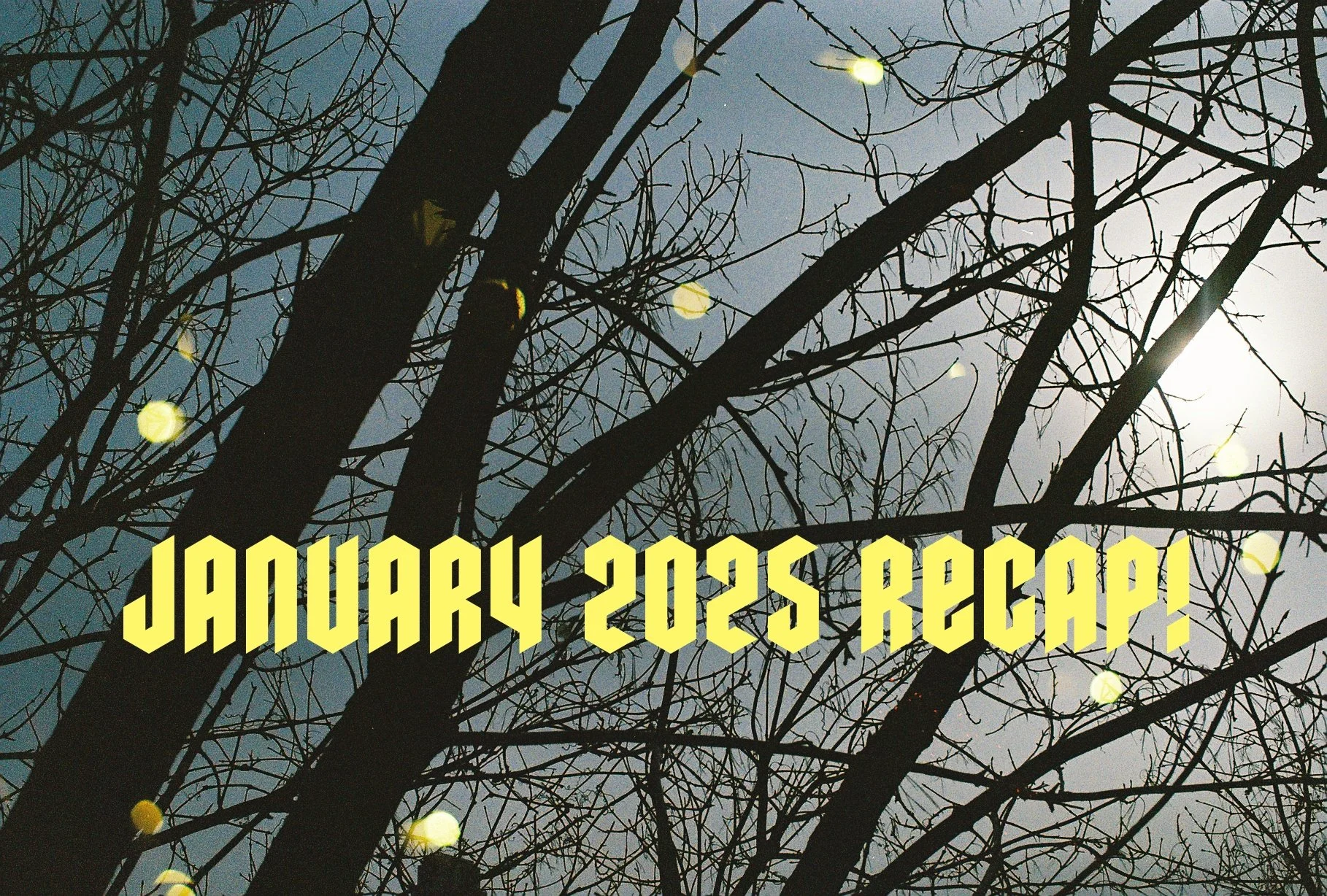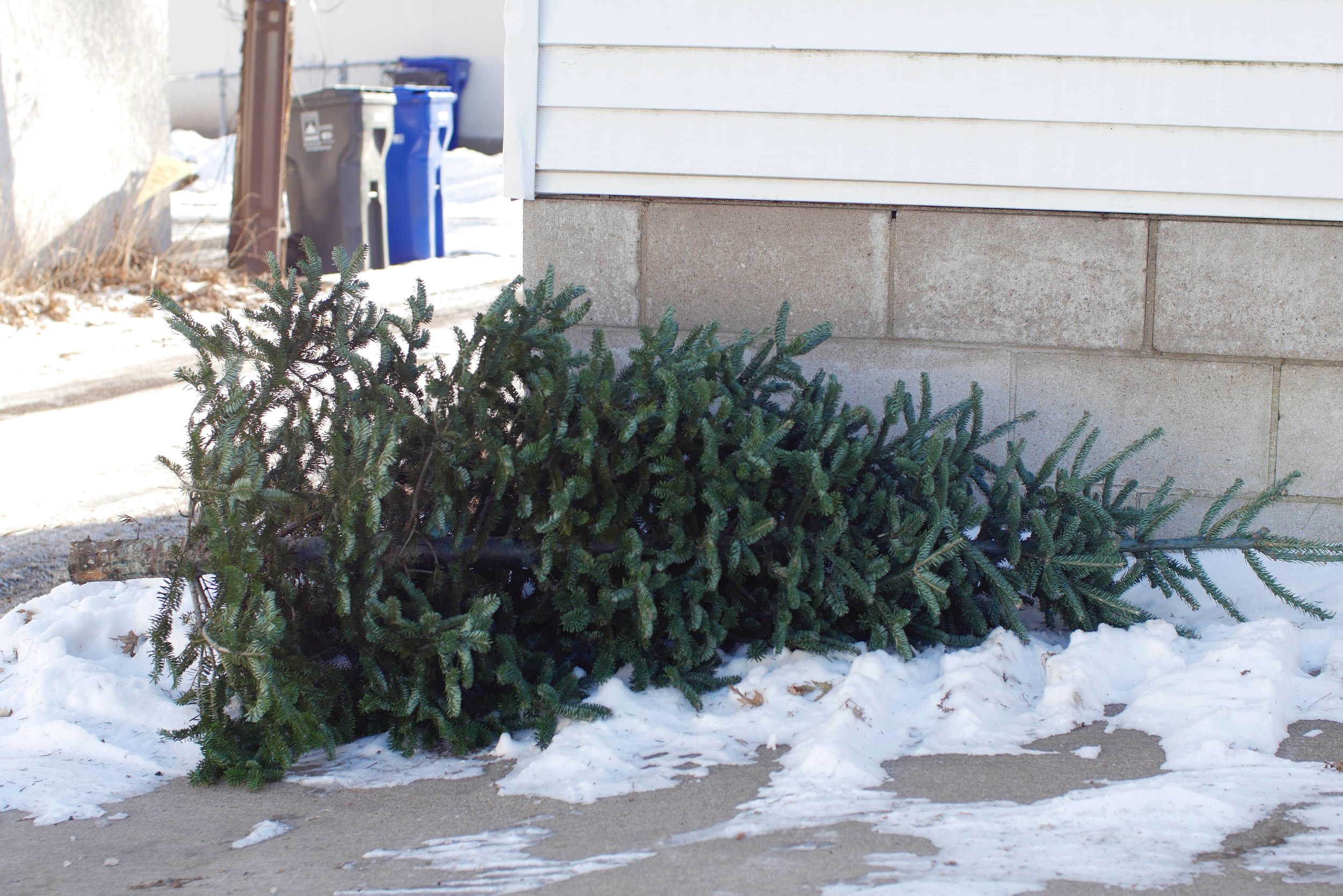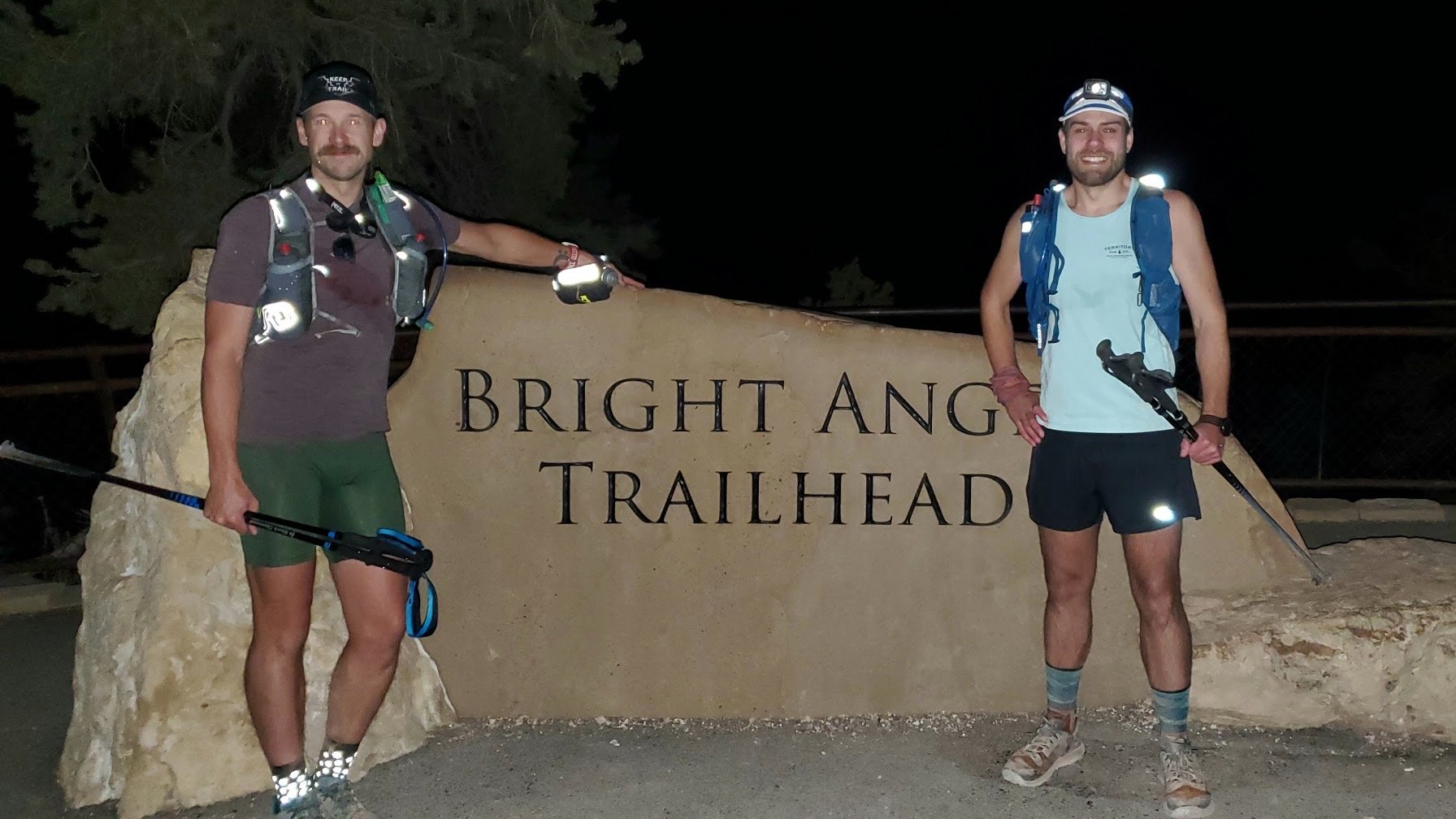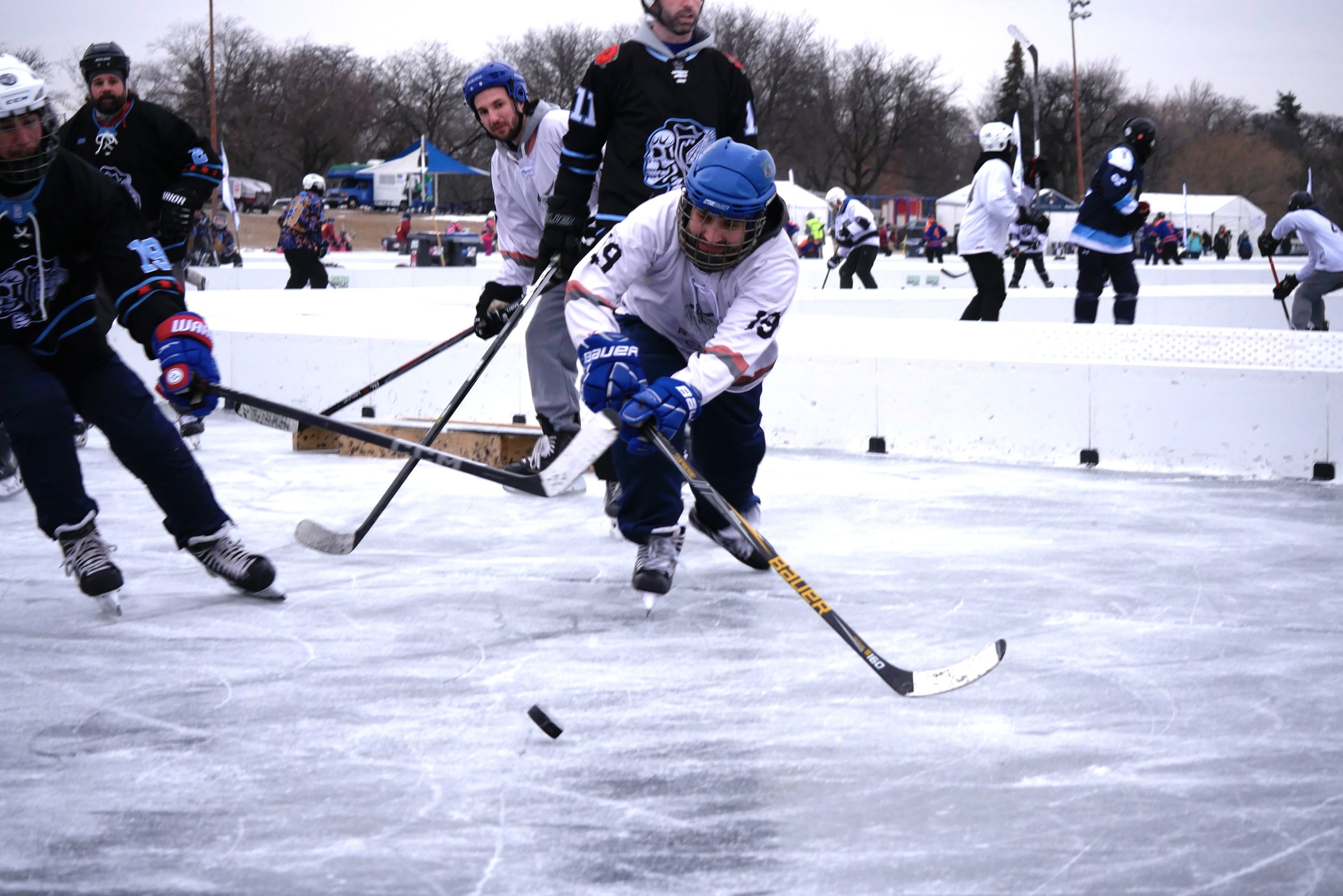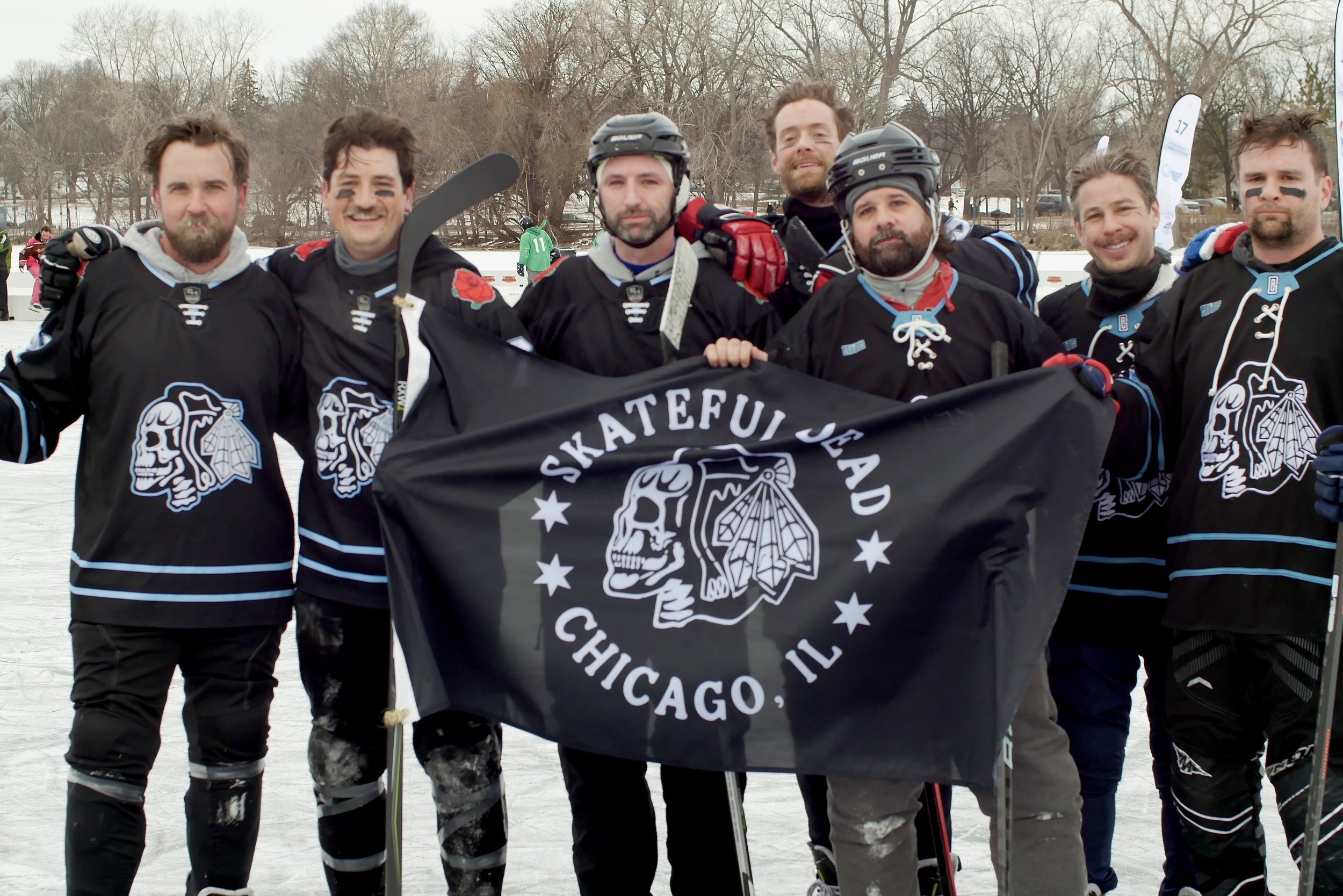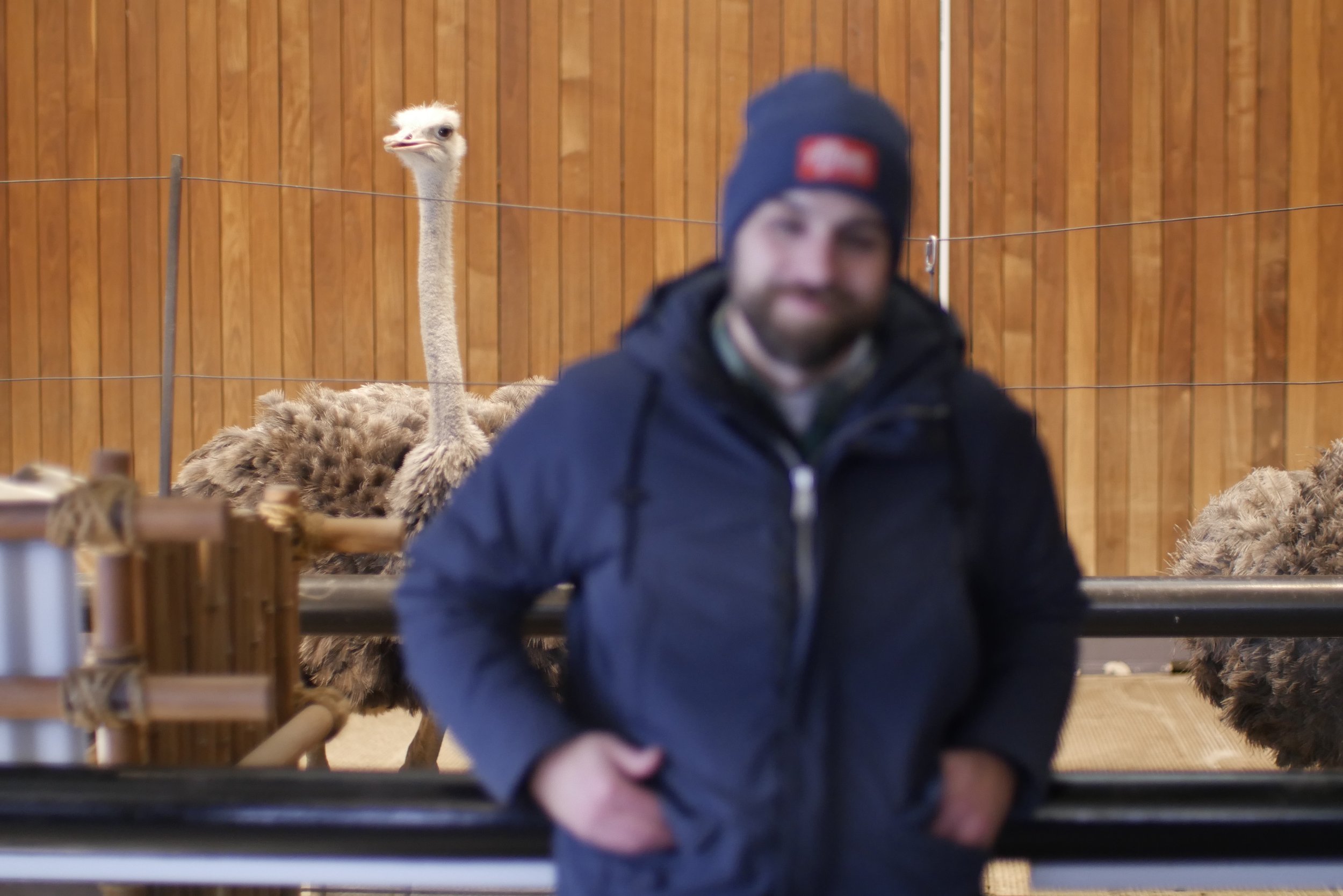I Melt With You
What is it? Who gets to experience it?
I’m 8 years old and spending a long weekend with my Grandma Dorothy in Moorhead, Minnesota. Mom and Dad gave me five $1 bills to last through the weekend, which I can stretch quite a ways in 1988, especially since Grandma is boarding and feeding me. Grandma is head cook at a high school. Her all-white, slightly stained uniform smells faintly of fried chicken as she drives me along to an errand at the Dilworth K-Mart. In the toy aisle, under flickering fluorescent lights, I linger, considering the cost of items like a new baseball and a translucent green water pistol. I thumb the crisp bills in the pocket of my neon orange, rorschach-patterned shorts and continue walking. The latest blue light special beckons shoppers to the automotive department while Modern English’s “I Melt With You” plays over the store’s tinny PA system. I made a pilgrimage to save this human race, never comprehending the race had long gone by.
At the check-out lane, while the teller scans Grandma’s goods—a box of Kaboom! cereal, and some Kleenex—I turn my attention to bottles of Sioux City Sarsaparilla and packs of Garbage Pail Kids cards. Setting my sights on a “fruit”-flavored bubble-gum cigar, I toss it onto the moveable belt and fish out one of my dollar bills. As Grandma gets the total from the teller, she looks at my choice of purchase, clicks her tongue and rolls her eyes before telling the cashier “Oh Miss, I’ll pay for that—cigar—there too.”
I protest. “No grandma, I’ve got money.”
She is already writing a check to the cashier though, and reminds me to “Save your money for a rainy day.”
On our way out of the strip mall parking lot, a Latino man with a deep tan is standing on the median leading out to Highway 10. He wears a short-sleeved, collared button-down shirt, with the top two buttons undone and drinks water from a plastic McDonalds cup. He holds out a cardboard sign which reads Help. No work. Please.
Something stirs in my chest and I touch the bills in my shorts pocket. “Gramma?” Her eyes briefly find mine in the rear-view mirror. “Can you pull over to that man?”
“Who? That homeless man on the corner?”
“Homeless?” I ask. The concept is completely foreign to me. I have never seen a homeless person in my tiny rural town of Lisbon, North Dakota, the only home I’ve ever known.
“Why? What do you want with him, now?” The windows of Grandma’s tan ‘82 Toyota Tercel are rolled up and her AC is on full blast, but the air inside the sedan is stifling.
“I want to give him some money.”
“Oh, I don’t know Joshie, let’s just get home and I’ll make you some supper.” Grandma pulls her sedan to the red light as cars scream past on the highway.
I start to crank down my window in the backseat and yell over to the man. “Hey mister!”
“Joshua Alan!” Grandma scolds me between clenched teeth. “Roll up your window right now, buster.” The man looks both ways and crosses over to where I have held out a couple of tightly rolled bills out to him. As he plucks them from my fingers, I can see sweat rolling down his temples. A small golden cross, hung from a simple chain, pulses as it rests against his chest. “Gracias!” he says as he retreats to the safety of the median. Grandma—a devout Catholic—guns her engine and drives me back to her home in silence.
Later, in her kitchen, as she stirs diced Velveeta and whole milk into macaroni shells, she looks at me. “That was very nice of you to give some of your money to that migrant worker, Josh, but you shouldn’t be talking to strangers. You won’t do that again, willya,” not a question; a statement.
I nod—out of deference, not out of understanding.
Grandma, Mom, Lace and me, mid-1980s
The origin of the word einfühlung is disputable. One source indicates that the word was first coined in 1858 by German philosopher Rudolf Hermann Lotze. Another source implies the word was first written by the German psychologist Theodore Lipps in his 1903 paper, Ästhetik. Psychologie des Schönen und der Kunst. A third suggests the word first appeared in print in German philosopher Robert Visher’s 1873 Ph. D. dissertation on aesthetics: Über das optische Formgefühl. Ein Beitrag zur Ästhetik.
The direct translation of einfühlung is “feeling into”, and according to Visher, represents the human capacity to enter into a piece of art or literature in an attempt to feel the emotions that the artist had worked to achieve, or to imbue a piece of art with relevant emotions.
The English translation of the word—EMPATHY—didn’t appear in print until Edward Titchener’s 1909 treatise: Experimental Psychology of the Thought Processes. Of course, the concept of “feeling into” a fellow human’s body—what we commonly mean today when we talk about empathy—has been around for as long as we’ve been walking upright; possibly longer.
Empathy could then be defined as the act of projecting oneself “into” a work of art or a neighbor’s emotional state, with the intention of understanding how it feels to be in that environment. This “feeling into” is usually accorded to bodies or environments that are more or less similar to one’s own. We find ourselves in rapt attention inside The Ballet Class thanks to Edgar Degas, moved to tears at Cio-Cio-san’s aria “Un bel dí vedremo” from Madama Butterfly, or fighting for survival alongside Edmond Dantès in The Count of Monte Cristo.
In a series of modern articles 1,2 neuroscientist Jean Decety and psychologist Jason M. Cowell define empathy in three separate strands:
Affective Sharing which reflects the natural capacity to become affectively aroused by others’ emotions. It occurs when you feel what another is feeling (or what you imagine another is feeling).
Empathic Concern, which corresponds to the motivation of caring for another’s welfare.
Perspective Taking, which is the ability to consciously put oneself into the mind of another individual and imagine what that person is thinking or feeling
I’m in seventh grade at Dilworth-Glyndon-Felton middle school, living with my 10-year-old sister Lace and Mom, while she continues her undergrad education at Moorhead State University.
My other sister, Lara, has stopped by after her duty day with the 119th Wing North Dakota Air Force National Guard to make dinner for Lace and me. In her starched camouflage uniform across the folding table, she flips through People magazine while I scrunch my nose at the Pythagorean Theorem. In the next room of this cramped second-floor apartment which we’re renting from a Minnesota Highway Patrolman, Lace is practicing a simple melody on her flute.
Without looking up from her magazine, Lara asks how I’m fitting in at the new school. There’s a nine-year gap between us, but, to her credit, she does her best to talk to me like I’m an adult. “Junior high was the worst years of my life. Have you made any friends yet?”
I shrug. I’ve only been in Dilworth a few weeks, but I’ve made fast friends with Charles Poncé. Charles had noticed me eating alone one day and asked if he could join. (Like me,) Charles doesn’t appear to have very many friends, which is perhaps why I found it easy to let my walls down around him. Charles is six inches taller than most of my classmates, with hair that resembles a copper Chore Boy pad. He doesn’t wear Guess or Gibaud jeans purchased on weekend trips to the Mall of America. Like mine, his family shops for school clothes at the Dakota Boys Ranch thrift store, Wal-Mart, or—for special occasions—on the clearance rack at Herberger’s.
“Well, there’s one kid named Charles who lives just down the street.”
“Oh that’s nice, what’s he like?”
Charles Poncé (center) and me (right), last day of 7th grade
I shrug again and gaze up from my trigonometry. I look over Lara’s shoulder—eye contact is not my strong suit. Her hair had been wrapped in a tight bun for duty, but she’s let it down and it hangs in chocolate ringlets on her shoulders and frames her golden-brown eyes. In high school she was a star basketball and volleyball player, a cheerleader, a thespian, a lifeguard, popular and gregarious. I have none of those attributes. I pause and push my glasses up the bridge of my nose. “He gets bullied—”
Lara looks up from her magazine and nervously chuckles, “What? Why?”
Tears start to roll down my cheeks. I don’t know whether it’s adolescent hormones, or the melodrama of middle school, or the stress of being physically separated from our dad, who I’ve never been apart from for more than a few days at a time, but who was living a five-hour-long drive away, in Dickinson. “The kids make fun of him because he’s got a big nose.” I run to my room and slam the door, collapsing into a heap of tears under the covers.
In psychologist Paul Bloom’s 2016 book Against Empathy: The Case for Rational Compassion, he argues that individuals—and nations—are often guided by honest, but misdirected emotions: “I have argued…that certain features of empathy make it a poor guide to social policy. Empathy is biased; we are more prone to feel empathy for attractive people and for those who look like us or share our ethnic or national background. And empathy is narrow; it connects us to particular individuals, real or imagined, but is insensitive to numerical differences and statistical data.”
I’m 14, and our family is reunited under one roof; my seventh roof and fifth time adjusting to a new town. Halfway through my eighth-grade year, we moved, and the summer of 1994 is my first time attending the North Dakota State Fair. In the Minot Daily News, which I deliver each morning, I read that I can get free admission if I work at the fair. Lace and I both apply and get hired. I’m a lemonade stand attendant, making $4.25 an hour. It’s easy money and I’m paid in cash at the end of each shift—far different from the once-monthly paycheck I collect from the Minot Daily.
I haul hefty boxes of lemons. I sort and rinse them, fingers sometimes poking through soft bottoms of ones which have rotted black and white. I cut the lemons, often slicing nicks into my fingers, and feel the acidic bite of the juice as I squeeze them into cheap plastic cups for hours and hours. In the open-oven heat of the lemonade stand, barely big enough for two adolescent attendants to work side-by-side, I add simple syrup and ice, before filling the cups up with water.
Usage of various words 1900-present
In the evenings, after washed up rock stars like Eddie Money (who hadn’t had a hit since 1988) play the mainstage, the midway takes on a brooding gloom. The daytime crowd of friendly young families and elderly couples give way to the low, sour smell of booze and cheap perfume as a raucous mob of college students, tattooed carneys, and airmen stationed at the base spill out of the grandstand. Lemonade sales slow to a crawl at night, as the sneering fairgoers seek out stronger beverages.
During my lunch breaks, I cool down by walking through the (aptly nicknamed) “Commercial” Buildings. Some of the tables there have no end of attendees lining up to shell out cash: the Beanie Baby booth, the new George Forman Grill, the free Zima samples (21+ Only!). The vast majority of tables, though, are staffed by bored salespeople hawking over-priced kitchen knives, spas, or driveway sealants. These are the booths I am drawn to. I never engage in conversation with these salespeople, and they don’t take me seriously either—a geeky, skinny juvenile in an oversized red apron, reeking of lemons. I approach each table, say a sidelong Hi and pocket a business card. Some workers smile at me, some regard me with skepticism, but table after table, Commercial Building after Commercial Building, throughout the duration of the fair, I visit the downtrodden sales associates and snatch a card. I don’t know why, apart from I feel sorry for them; I want them to feel seen.
By the end of that summer, I’ve got hundreds of business cards, collected into a neat stack on top of my dresser.
ND State Fair splendor, 1994
“Everybody Cares, Everybody Understands” from Elliott Smith’s 1998 album XO
Yes everybody cares about you
Yeah, and whether or not you want them to
It's a chemical embrace that kicks you in the head
To a pure synthetic sympathy that infuriates you totally
And a quiet lie that makes you want to scream and shout
Some research has shown that we may indeed be primed for empathy. In one study3 researchers gave participants five $1 bills to donate however they wanted (or keep). Before the donation, participants were broken into two groups and asked a series of questions. Group x was asked questions that might evoke a feeling response, such as “When you hear the word ‘baby’ how do you feel? Use one word to describe your dominant feeling.” Group y was given instructions to “work carefully and deliberatively to calculate the answer” to questions like “If an object travels 5 feet per minute, how far will it travel in 360 seconds?” Perhaps unsurprisingly, Group x (feeling questions) gave “significantly more”: $2.34 on average. Group y, who had to field the calculation questions first only gave: $1.19 on average.
Transcript from Joe Rogan Experience episode #2281 (Feb 28, 2025)
ELON MUSK
Like, there's so much empathy that you actually suicide yourself. So, we've got civilizational suicidal empathy going on. And it's like, I believe in empathy, like, I think you should care about other people, but you need to have empathy for, for civilization as a whole, and not commit to a civilizational suicide.
ROGAN
Also don't let someone use your empathy against you so they can completely control your state and then do an insanely bad job of managing it and never get removed.
MUSK
The fundamental weakness of Western civilization is empathy. The, like, empathy exploit. They're exploiting a bug in Western civilization, which is the empathy response. So, I think, you know, empathy is good, but you need to think it through and not just be programmed like a robot.
ROGAN
Right, understand when empathy has been actually used as a tool.
MUSK
Yes, like, it's weaponized empathy is the issue.
ROGAN
Totally
“We have the most empathy for people we are close to [geographically, culturally]. But we also have the ability to empathize with people who have suffered in similar ways. If you see footage of the [January 2025] Los Angeles fires and you have experienced any kind of loss or displacement, that will resonate, because we are all vulnerable to those types of experiences. We say, I’ve walked those streets. However, if the fires are happening in Pakistan or somewhere we haven’t been, it can be easy to turn away.
“One of the biggest challenges to empathy today is people are losing the ability to really see other humans as people that are experiencing pain and suffering, who are not like them. One of the biggest challenges in any industry is: the less we identify with people, the greater opportunity is to learn about them and open that curiosity about them…using emojis to “convey” emotion, or texting rather than talking [is dehumanizing]…the human face is a roadmap: by making facial expressions, you are alerting other people about something. Reading facial expressions correctly is vital. If we’re always looking at our phones, and not looking at other people, we are missing so many emotions. It is very hard to know what people are experiencing if we just read it over text.”4
Ben Garrett’s Twitter bio describes him as a “Christian husband and father. Pastor at Refuge Church in Ogden, UT.” and, importantly, “Co-Host of @HauntedCosmos_” (with 48,000 subscribers) on Youtube, a channel dedicated to “Investigating a world that's not just stuff.” The two most popular videos on the channel are a 94-minute discussion on “Giants of the Bible” and a video demonizing ayahuasca, called “DMT and the Serpent Gods: Your DARE officer was right!”
“Now it happened, the day after, that Jesus went into a city called Nain; and many of His disciples went with Him, and a large crowd. And when He came near the gate of the city, behold, a dead man was being carried out, the only son of his mother; and she was a widow. And a large crowd from the city was with her. When the Lord saw her, He had [empathy] and said to her, ‘Do not weep.’ Then He came and touched the open coffin, and those who carried him stood still. And He said, ‘Young man, I say to you, arise.’ So he who was dead sat up and began to speak. And He presented him to his mother” (Luke 7:11–15).
Gen Z has experienced their first peek behind the curtain at genocidal atrocities, with the Israeli military’s ongoing destruction of Gaza. Vertical video of dead Palestinian babies was broadcast for months on social media platforms like TikTok—where a stupefying 45%(!) of Gen Z get their news (compared to 0.5% of that generation who get their news from local online or print news organizations)5.
In her book A Problem from Hell: America and the Age of Genocide, journalist Samantha Power documents the many times since the dawn of the 20th century that U.S. presidents have balked at preventing genocide: “No sitting U.S. president has ever made genocide prevention a priority, and no U.S. president has ever suffered politically for his indifference to its occurrence.”
For illustration purposes, a few recent genocidal—erm—highlights?
Nazi Germany 1938-45 — approximately 6 million Jews killed by the Nazis. To put that into context for people of my generation and culture to understand better, that is the equivalent of 2,000 9/11s. That’s one 9/11 every day for five years, five months, and three weeks.
Ukraine 1932-33 — up to 5 million Ukrainians killed by the Soviet Union.
Bangladesh 1971 — up to 3 million Bengalis killed by Pakistan Armed Forces. This is the equivalent of 1,250 Pearl Harbors. One Pearl Harbor every day for three years and five months.
Cambodia 1975-79 — up to 2 million Cambodians killed by the Khmer Rouge.
Armenia 1915-16 — up to 1.5 million Armenians killed by the Young Turks.
Rwanda 1994 — up to 800,000 Tutsi, Hutu, and Twa killed by Hutu militias.
Darfur, Sudan 2003-05 — up to 500,000 non-Arab Darfuris killed by Sudanese government and militias.
Congo 1996-97 — up to 233,000 Rwandan, Congolese, and Burundian Hutus killed by Rwanda-backed forces.
Gaza 2023-present — up to 150,000 Palestinians killed by Israeli forces.
West Darfur, Sudan 2023-present — up to 30,000 Masalit civilians and non-Arab Darfuris killed by the Rapid Support Forces of Sudan.
Bosnia 1992-95 — up to 62,000 Bosniak muslims killed by Bosnian-Serb forces.
Ukraine (again) 2014-present — up to 50,000 Ukrainians killed by the Russian military.
Myanmar 2016-present — up to 43,000 Muslim Rohingya people killed by the Myanmar military. This number is equivalent to 35 Titanic disasters. One every day for over a month.
As Mother Teresa put it, “If I look at the mass I will never act. If I look at the one, I will.” Each TikTok of a dead Palestinian toddler put a single face to the travesty—humanized the genocide in a way that a spreadsheet cannot.
I have regular nightmares: I’m in Basrah, hiding out in a sandy, abandoned tenement. In the dream, I’m trying to rest, but the sound of approaching jets and mortarfire wake me. I sit up, frantic, sweat dripping from the intense desert heat, as I try to get my bearings and run for the tenement exit, an ungodly explosion rips the sky above me and I’m buried in rubble.
From March to June of 2005, I’m whippin shitties in the Persian Gulf, along with 5,000 co-workers aboard the USS Carl Vinson. During those three months, 4,019 Iraqi civilians are killed in combat operations. 3,407 of these are killed by US-led coalition forces.6 During that same period, 212 U.S. service members are killed there. Unlike many of my Operation Iraqi Freedom(!) brothers and sisters, I don’t personally have “boots on the ground.” I am not pulling the trigger of an M16. During my six year enlistment, I only touch a gun once, during bootcamp (or Recruit Training Command, as it’s officially called).
I am a nuclear reactor operator on the Vinson, an aircraft carrier. I control the fuel rods in the reactor core, which in turn produces steam for various purposes: to power the ship’s propulsion, to feed turbines that power the ship’s electrical grid, and critically, to trigger the carrier’s catapult system, which launches the F16 “Vipers” that we are constantly—and I mean at all hours of the day and night—sending north into Iraq. These F16s are loaded with a lethal assortment of air-to-air, air-to-surface, and anti-ship missiles, cluster bombs, laser-guided bombs, anti-personnel mines, and a 500-round 20mm rotary cannon. I try to avoid walking past these F16s whenever possible, for a couple of reasons. For one, the aircraft mechanics, ordnancemen, and pilots all know that we “nukes” (as we’re called) are textbook smart and common-sense dumb. They figure that one of us may well pull out a Leatherman tool and start tapping on a warhead just to see what kind of sound it makes. Secondly, I avoid the bomb-heavy F16s because I don’t want the reminder that they are going to return much lighter, and while some “bad guys” may now be deceased, there is always some collateral damage.
When I joined the Navy in the summer of 2000, Bill Clinton was a lame duck, it looked like Al Gore would be our next president, and America was not embroiled in any war. That October, al-Qaeda loaded a boat with explosives and pulled alongside a Navy destroyer, the USS Cole, which was in harbor at Yemen. The subsequent blast killed 17 sailors and wounded dozens more. In November, George W Bush won a highly contentious presidential election that turned on just 537 votes in the swing state of Florida. The following September, while I was in Navy Nuclear Power School in South Carolina, I watched in horror as the twin towers fell in Lower Manhattan. I signed up out of a sense of service to my country and for the promised Montgomery GI Bill, but suddenly, I was thrust into a raw and terrible new reality.
There was a wave of military enlistments following 9/11, and it was easy for me to tell who signed up before from who enlisted after that September day. Those like me, who entered service prior to 9/11 seemed more easy-going, serious about their duties and the direction of their career, even reserved. Those who came after were like rabid dogs. They were indignant, they wanted blood. They frequently referred to Iraqis and Arabs with racist nicknames. In our shared berthing compartment, they would watch nothing but war films: Platoon or Pearl Harbor. I’d pop in some foam earplugs to block out the sound of F16s landing on the flight deck above me and the boneheads cheering along to Gladiator in the next room, and I’d try to sleep, or read my Tolstoy.
The nightmares continue to haunt me.
According to Asha Rangappa, former FBI Special Agent, assistant dean and senior lecturer at Yale Jackson School of Global Affairs: “Enemy combatants [under the George W Bush-era Department of Justice]…who were captured abroad, who never stepped foot on American soil had the ability to petition for a writ of habeus corpus, due process rights, the ability to contest their enemy combatant status, and were protected by the Geneva Conventions. What we’re seeing now [the forced removal of individuals to CECOT in El Salvador], is people who have been in the US for a decade [who] aren’t being afforded those same rights.”7
Infamous 2003 photo of a prisoner at CIA “black site” Abu Ghraib
September, 2024: it’s an election year, and a particularly interesting one at that. The Republican candidate nearly took a bullet in the temple. The Democratic president literally shit his adult diaper onstage during his one and only debate, and was subsequently forced out of the race. His replacement had “very little time to make her case to the American people” as we were repeatedly told on cable news. Egg prices were soaring—never a good sign for the party in power. The Republican candidate claimed at another debate that Caribbean-born immigrants were eating Golden Retrievers and Maine Coons in a small Ohio town.
It’s a Friday and I’m walking home from the bus stop. A few gilded leaves crunch underfoot, but the plentiful Slippery Elm and Bitternut Hickories still have most of their leaves: green and mottled yellow. The tall, lovely Sugar Maple two doors down from us is blooming blood red. Evergreen Arborvitaes dot the block.
A shiny blue pickup glides alongside and parks up ahead of me. Its driver, a man in his early sixties, with silvery hair walks around the cab and swings the passenger door. He pulls out a Pizza Hut box and a twelve-pack of Diet Mountain Dew. As I observe him, a big smile crosses his lips while he bumps the door closed with his behind.
Nostalgia hits me like a bolt from the sky. It’s another Friday evening, but this one is 1991 in Dickinson. It’s payday for Dad, who for a great treat, takes the family out to Pizza Hut. Lace and I are voracious elementary school readers, so we’ve each earned a free personal pan pizza through our school’s Book-It program. The buttery crust, the melting cheese, the spicy pepperoni combine to set the tone for a weekend of jumping on the neighbor’s trampoline, playing Super Nintendo, and rollerblading. If we’re good, Mom will let us stay awake long enough to watch the first half of Saturday Night Live—the Chris Farley years.
I’m smiling now too, as I watch the man cross from his pickup to his simple, well-maintained home. And then I see it. A lawn sign for a politician I am diametrically opposed to. My smile instantly turns to a frown and my brain begins an internal dialogue with this man, this neighbor. I’m silently screaming obscenities at him. Any empathy I might have gained from observing him vaporizes in that moment. I feel a sudden urge to run up to him and knock his stupid pizza out of his hands.
I do nothing of the sort. Instead, I spend my weekend listening to political podcasts that reinforce my point of view.
Research has indicated that liberals in the U.S. have higher general levels of empathy than conservatives.
Surveying the contemporary research literature reveals a general consensus that liberals tend to be more egalitarian, less authoritarian, more tolerant of out-groups, less concerned with in-group unity, and look less favorably upon hierarchical social structures than conservatives. The more egalitarian and less hierarchical bent of liberals tends to make them look more favorably upon policies aimed at eliminating wealth inequality and providing for the poor (e.g., welfare programs), as well as those seeking to provide all citizens with free access to healthcare and higher education. Finally, conservatives tend to place more of an emphasis on protecting citizens from aggression by either fellow citizens or foreigners. This helps explain why conservatives tend to have more favorable attitudes towards military spending and harsher punishment of convicted criminals than liberals.8
At my future father-in-law’s home in Arizona, over a game of Progressive Rummy, Mike tells me: “I’ve really enjoyed reading the blog posts on your website.” It’s mostly unedited poetry and 20 years of diary entries—sans context. I thank him for reading as I shuffle and deal the cards. “You’re very observant,” he says, discarding a Jack of Hearts.
“You wouldn’t think so by looking at the score,” I joke—it’s true though, I’m bringing in the rear with 110 points to his 22. I never know how to respond to compliments, so my natural instinct is to first deflect, and then to crouch into a defensive posture in the corner. As I take a sip of Pacifico, I wonder where Mike is going with this.
But he leaves it there. Just two simple statements, boiled down to: I enjoy your writing, and you are observant.
While I’m finishing a long run with Leah the next day, Mike’s observations are still rattling around inside my brain. In all the writing classes I’ve taken, one theme stands out: to write, first observe. Because we are living in this foul year of our slob, 2025, and because I’ve been living and breathing this acrimonious political milieu for weeks, I’ve been feeling ill. I’m sleeping poorly, drinking more than usual, in a perpetual foul mood, exhausted.
For weeks, I’ve been observing good, hard working people lose their jobs, a precipitous drop in the stock market, US citizens disappeared to a foreign gulag. I’m not only observing all this, I am feeling into the recent retiree who just lost $100,000 in his 401(k), the career military leaders—admirals and generals—who have lost their jobs because they are Black or female, the gay makeup artist—now rotting in a maximum-security prison on foreign soil—whose only crime seems to be that he had a tattoo.
How can you write if you don’t first observe? How can you observe without feeling?
Painted into the back of a St Paul bus stop. The message has since been removed.
1 Decety, Jean, & Cowell, Jason (2014). “Friends or foes: Is empathy necessary for moral behavior?” Perspectives on Psychological Science, 9(5), 525-537.
2 Decety, Jean, & Cowell, Jason (2015). “Empathy, justice, and moral behavior.” AJOB Neuroscience, 6(3), 3-14.
3 Small, D. A., Loewenstein, G., Slovic, P. (2007). “Sympathy and callousness: The impact of deliberative thought on donations to identifiable and statistical victims” Organizational Behavior and Human Decision Processes, 102: 143–153.
4 Riess, Helen, MD. “Episode 60: The Science of Empathy” Empathy Unbound: Embrace Your Superpower podcast, hosted by Andrew Phipps. February 24, 2025.
5 New York Times-Siena College Poll of the National Likely Electorate. October 8, 2024.
6 Hsiao-Rei Hicks, M., Dardagan, H., Guerrero Serdán, G., Bagnall, P., Sloboda, J., Spagat, M. (2011). “Violent Deaths of Iraqi Civilians, 2003-2008: Analysis by Perpetrator, Weapon, Time, and Location.” Public Library of Science: Medicine, 8(2)
7 Rangappa, Asha. “The Emergency is Here” The Ezra Klein Show podcast. April 17, 2025.
8 Morris, Stephen G. (2020). “Empathy and the Liberal-Conservative Political Divide in the US.” Journal of Social and Political Psychology,8(1): 08-24
On This Day: 4/18/05
4/18/2005
Somewhere in the Persian Gulf—
We arrived in the Gulf on 3/18/05, and I’m hearing rumors we’ll potentially be here until mid-June. Baseball season started earlier this month, and I’ve been trying to keep track of the Minnesota Twins, but it’s impossible with the lack of news—sports or otherwise—here^.
I’m making some money now. Regular base pay, plus sea pay, plus while we’re in the Gulf (a “zone of combat” according to the IRS), our pay is exempt from taxes. Since I don’t have anything to spend my money on, I’ve got more cash in my account than I’ve ever had. I ordered a new guitar to be sent to Lara’s place in Norfolk. It’s a beautiful jet black Epiphone Casino. Can’t wait to see and play it. I also ordered a laptop, and a book on how to use ProTools [audio recording software], so I can finally get my home studio off the ground.
On April 12th, the USS Carl Vinson anchored off the coast of the Kingdom of Bahrain. I admit that I knew nothing of Bahrain before joining the Navy, and now that we were here, in the current climate of aggression towards Iraq and Afghanistan, Al Qaeda, the Taliban, etc. I didn’t feel super safe venturing off the ship. Nonetheless, with a handful of shipmates, I got on one of the liberty boats, destined for shore. As we motored towards the pier—a fifteen minute-long ride—I noticed that each liberty boat was flanked by a US Navy patrol boat with a 50-caliber gun mounted in the bow.
Once we got to the pier, they shepherded us into large vans which drove us through the city of Al Manāmah towards the base. The ride was short, but we got to see an uninspiring portion of the island: many squat, angry-looking buildings with broken windows. The van lumbered along cracked pavement until we pulled into an alleyway, surrounded on both sides by tall brick walls topped with barbed-wire. In a moment, I imagined all manner of ridiculous things—masked men armed with AK-47s, forcing the ship’s company into a nondescript basement where we’d be held hostage for weeks, until our eventual execution by beheading in front of rolling video cameras. We’d make the front page of the New York Times: MAJOR ESCALATION IN WAR AS U.S. SAILORS EXECUTED. Instead, on the other side of the fence was our base, Naval Support Activity Bahrain. I walked around inside the base, absolutely safe, eating KFC, bowling, and drinking Budweiser. I bought a few items at the commissary, and generally had a pleasant, if boring time there.
Two weeks before we went to Bahrain, the band that I play bass in—Klickitat County—performed at a rare morale-boosting event called a “Steel Beach Picnic”. We had to prove our worth, however, by performing for the judges. Jack Brett, James Rascoe, and I hauled our instruments to a small classroom on the ship, where we played the blues standard “Key to the Highway,” “Two of Us” by the Beatles, and our medley of “Rocky Top/Under the Double Eagle/Take Me Home, Country Roads/Lookin’ Out My Back Door.” Chief Petty Officer Joseph, of the ship’s Safety Department, who was one of the judges, seemed to like our sound, proclaiming “You’ll need to rehearse once—maybe twice—before the picnic.”
A hangar bay, where our band rehearsed for hours, once
The next day, the three of us, along with our drummer Derrick Cribbs, practiced in a corner of the hangar bay for close to three hours. It was quite an experience! So many sailors passing by stopped to listen—smiling, tapping a foot, singing along when they knew the lyrics, applauding us when we finished rehearsing a song. It’s rare to see people enjoying themselves out here. The work is non-stop, the fear is non-stop, the loud launching of jets at all hours of the day and night. We’ve been out here for months and people look worn out:
The 18-year-old Aircraft Ordnanceman in his red shirt and helmet, responsible for loading lethal bombs onto F-16s
The grizzled Senior Chief, who has been doing this work for twenty years and whose third marriage is on the rocks
The 24-year old LTJG [Lieutenant, Junior-Grade], who due solely to the fact that she is a female on a ship that is 85% male, is leered at all day, every day, and only emerges from her berthing to stand watch or to dine in the Wardroom
The next day, we rehearsed again for the Picnic Magistrates, who, nodding gravely and agreeing that we were progressing well, assured us that with only a few more rehearsals, we would be ready for the big day. The whole routine was pretty laughable, as we’ve been playing together as a band for nearly three years at this point, including shows in Seattle, Tacoma, and open mic nights in Bremerton, etc. but I get it.
Klickitat County performing at the USS Carl Vinson Steel Beach Picnic, 2005. (l to r: Derrick Cribbs, Yours Truly, Jack Brett, and James Rascoe)
The day of the picnic was hot, with a hazy blue sky and calm waters. All the jets had been moved from the flight deck to the hangar bay and a small stage was built for the performers. Big charcoal grills were located across the flight deck and hamburgers, hot dogs, and cold soda-pops were freely available. They actually let us dress in our “civvies” if we wanted to, so sailors in t-shirts and shorts gathered in groups, or lined up for food. We were able to pack four full songs into our fifteen-minute allotment of stage time. I was thrilled to see many of our Reactor Department buddies out there, enjoying our set, though they were melting in the hot middle eastern sun. Many acts followed, from R&B groups, to singer-songwriter types, but the final song of the day was an old-school rap, performed by Chief Joseph, which had the crowd smiling and laughing.
Hearing rumors about liberty ports coming up in Greece and Italy, but who knows. For now, it’s back to our day job of navigating back and forth in the Gulf, launching F16s at Iraq. God help us (and the innocent Iraqis in our path).
———————————————
Elsewhere on 4/18/2005:
*Black smoke emerged from the Vatican, signaling that the papal conclave had yet to choose a successor to the recently deceased Pope John Paul II.
*In Pelican Rapids, Minnesota, a 24-year-old man was arrested in the stabbing death of his housemate, another 24-year-old man
*A US civilian aid worker and several Marines were killed in a car bomb in Baghdad
^The Twins lost 2-1 at Cleveland, in the most “Twins” way imaginable: after loading the bases in the bottom of the eighth, Twins reliever JC Romero hit Cleveland slugger Travis Hafner in the elbow with a pitch, thus walking in the winning run. (from The Fargo Forum, 4/18/2005, accessed online 4/13/2025)
Evolution of a Coffee Snob
1996, Minot
I’m sixteen, at Ryan’s Family Diner, where coffee costs fifty-nine cents (including unlimited refills). It’s after ten on a Friday and I’ve just come from the Fitz of Depression concert at Minot’s Collective Cultural Centre. A smoldering Djarum Black rests between my fingers. The butt matches my painted fingernails. My hair is bleached the color of the snow that’s piled on the windowsills of the diner. I stir two sugar packets and one room-temperature Land-o-Lakes creamer cup into a mug. The coffee slowly fades from mud to cardboard. The chintzy clink of a teaspoon along the ceramic walls of the cup blends with the clattering of plates that busboys load into plastic tubs. I lift the steaming brew to my lips and sip. I can feel the stares of the squares surrounding me as I scribble onto a napkin what I’m sure is a masterpiece:
Heathenistic hell flames!
burn at me! lap at me!
lift me and digest me once more
squeeze my juicy, rotten fruit, oh lord!
Ryan’s Family Diner, Minot, ND RIP
1998, San Diego
I’m visiting Lara after high school graduation. She’s at work when I decide to explore the city. First order of business is to find a coffee shop—one she recommended, called Starbucks. I order a grande (that’s what they call a medium) drip coffee and am thrilled to discover shakers of cinnamon, chocolate, and vanilla powder near the trash bins. There’s a park out front of the Starbucks where an ambulance is loading a dead vagrant onto a gurney. I stare for a while and then tote my coffee around the neighborhood, in search of a record store I found in the yellow pages. I purchase ska band Hepcat’s “Scientific” and pop the cassette into my Walkman as I bop among palm trees. I walk close to ten miles, stopping off to get my tongue and eyebrow pierced on a whim. Later that day, I tell Lara what I did all day and her eyes fly open. “What the hell, dude? Mom’s gonna kill me!”
Lara and me in San Diego, 1998
2005, Persian Gulf, near the Strait of Hormuz
I roll out of my rack just before twenty-two hundred hours, pull on my poopy suit and stumble down the p-way to the aft galley. I approach the coffee canteen and fill up a styrofoam cup with lukewarm sludge, before climbing down the ladder to the bowels of the ship—the Reactor Compartment. I relieve the mid-watch, settling onto the operator’s chair. I run my gaze across the board. Dozens of dials, meters, LEDs, warning lights, buttons, and triggers stare back at me. I pray to god that nothing out-of-the-ordinary will happen over the next six hours and take a long stinky pull from my cup. Having taken my hourly logs, I flip to the last page in my clipboard, where I’m writing what I’m sure is a masterpiece:
Blue sky, blueberry,
Blue sea,
bluer than Robert Johnson
2007, Brisbane
I wake up at a bed and breakfast outside Brisbane on Lacey & Adam’s wedding day. Breakfast is served outdoors on a sunny patio, in the shade of sweet viburnum. We have warm bialy rolls with Vegemite, orange wedges, and a French press. I pour myself a small cup and taste coffee like I’ve never tasted coffee before. I catch flavors of blackberry, pine nuts, and somehow, honeysuckle. When I get back home, I throw out my Mr. Coffee and never look back.
2014, Edgewater
The best part of my day is early morning. I bike down to Coffee Studio on Clark and Olive. They make the best coffee in the city, I’m sure to tell anyone who asks. I order a single-origin pour-over and a red velvet donut. I sit on the sidewalk and watch the buses and cars stalled bumper-to-bumper. It’s early September and there’s a crispy chill in the air, though it will heat up by midday. It takes five minutes before the barista—Clarice, a clarinetist—calls my name. The oversized mug is filled all the way to the top and the deep brown liquid has a sheen on the surface. Lacy ribbons of steam rise up out of the mug. I slowly bring the coffee to my lips and sip. This moment makes the rest of my day, processing timesheets at the Illinois Department of Rehabilitation Services, feel a little easier. I pull out my notebook and compose what I feel is my masterpiece:
The entire goddamned globe is always
within arm's reach, now.
Our once-beautiful faces
seared in a pale blue light--
dead dahlias drooping in a stiff autumn breeze
2021, Horner Park
I wake up at five every day, even on weekends. This is my golden hour; the one hour I have to myself before I start getting the inevitable early morning trouble-calls from work. I light the kettle, pour precisely eighteen grams of coffee beans into my burr grinder and press the button. The fresh grounds are of perfect consistency, like dried beach sand. I pop an unbleached circular paper filter on to the end of my aeropress, pour in the grounds, and once the water temperature reaches two-hundred degrees, I bloom the grounds. Steam rises up and I catch the first whiff: rose petals, dark chocolate, mown grass. I pour in the remaining eight ounces of water, stir for thirty seconds and slowly press the plunger into my favorite mug. I take a luxurious sip and gaze out my living room window, past the reflection of my hair, which is turning white naturally now, to see the sun shimmering through the honey locust branches. I open my laptop to a new email. Floating atop the dozens and dozens of rejection letters, I can barely believe the text: “I am delighted to inform you that your poem has been chosen for publication…”
Scene with sons at the dinner table
April is National Poetry Month! I aim to post a poem each weekday in celebration of the form. Some old, some new, some published, some never-before-seen.
As I mentioned in a previous post, poetry is everywhere. As I mentioned in another previous post, I am a childless pug-papa, but I have three nephews and two nieces, ranging in age from 3 to 24. I am grateful that over the past few years, I am proximally closer to my parents and to one of my sisters and her family. On one of my recent trips to visit them, I witnessed what is described in the poem below. A brief moment, but a moment that made my heart melt. A moment of love—in as much as men in our society can and do show love.
The original title for this poem was “My nephew feeds a cucumber slice to his grandpa” but it was too convoluted, too hard to follow. In revision, I simplified it by changing the name of my nephew and adjusting the relationship of the speaker (poet’s voice) as the father—observing the actions of the generation before him and the generation after him.
This is also one of my recent favorites, never before published online or elsewhere, but a poem which I read at my first-ever poetry reading at the Cannon Falls VFW last autumn.
Scene with sons at the dinner table After his seventh or eighth shake of salt onto the cucumber medallions which I have laid before my boy, I plead with Grayson not to eat them. Too much salt is like, really bad for you, bud. His eyes flip, moan, tackle mine: Conor McGregor hammerfisting Dr Phil. I think of my co-worker Bob, my age, and on a mandatory low sodium diet, courtesy of his cardiologist. I think of Grampa, an eighth-grade grad, who as a farmboy during the Depression, ate lard sandwiches for supper— that porky paste under his French tongue— and succumbed to his second heart attack. I think of Dad, aged 79, whose open-heart surgery and twice-grafted aortic aneurysms haven’t slowed the pace at which he cooks and consumes pot roast, meatloaf, bacon-wrapped bacon; who, for as long as I can recall has sprinkled salt into cans of Hamm’s, canned ham, tomatoes, flesh of watermelon. And Grayson, sitting in his usual place at Dad’s elbow looks up at him, laughter boiling in the teapots of his eyes, as he dresses his dinner in a crystalline sweater. Dad, distracting him with the guillotine chokehold flashing from his forty-inch console TV, taps the cucumber slice once, like an ashy cigarette, against the lip of Grayson’s Darth Vader dinner plate, and eats it himself.
Happy National Poetry Month!
Happy National Poetry Month!
Hello dear sweet Reader. April is National Poetry Month and to celebrate, I’m publishing a poem a day over on my Substack. Some are old, some are new. Some have been published in literary journals and some have never seen the light of day. Some are touching, some flippant, but all crafted by yours truly.
Pop on over to my Substack page “Blue-Collar Fugue” and follow the journey. I’d love to see you there.
March 2025 Recap!
‘March’ is no one's favorite word…has no comments yet, and is not a valid Scrabble word.
—from my new favorite website, Wordnik!
The first quarter of 2025 is in our rear-view, dear reader. True to form, our upper midwest March oscillated between blizzards and sunny 60-degree days. While one can never be too sure how the weather will change, I took a chance and drove up to Fargo the first weekend of the month, to celebrate the birthdays of my Mom and brother-in-law, Adam.
Mom and me early 1980. Seated left to right, Mom’s Grandpa Ed and Grandma Edna McGough, and her Grandpa Arthur Lemke (whose wife Sadie passed away mere hours before my birth on 1/7).
Dad and buddy Liberty Rose Sauvageau (aka Libbens)
As I’ve been researching and writing about family history lately, Mom shared several pictures and files that she’s collected over the years. Of particular note was a series of articles from the Seattle Star (dated April through September, 1945), detailing the shocking sexual assault and murder of my Grandma Dorothy’s 5-year-old cousin Irma Irene McGough.
from the April 27, 1945 Seattle Star. Grandma’s Uncle James McGough at right
Grandma’s cousin Irma Irene McGough, with her mother, Beulah May Simmons
In going through some old pictures, we also came across an article, which very well may be the genesis of my lifelong desire to write. From the Winter 1983 edition of North Dakota Bowhunters Association quarterly publication is a several-thousand word essay headlined “Manitoba Black, Our Way” — penned by my dad. An excerpt:
“With a single movement, Scott [Lang, Dad’s friend] drew and released a 2117 Gamegetter tipped with a four-bladed Satellite. The [bear] lurched with all the strength she could command, ran a short 60 yards and died peacefully in flight…We were awestruck at the beauty of this fallen animal: it happened so quickly and now it was over. We carefully dressed her with the reverence fitting a forest queen…”
Dad with his “Manitoba Black”
As a boy of 6 or 7, I remember feeling spellbound by this article. My parents encouraged reading from a young age: Mom would regularly take Lacey and me to storytime at the Lisbon Public Library, and Dad would read to us before bed. But seeing my father’s name in a print byline led to the youthful realization of the accessibility, and the potential reach of writing. I was happy to see that Mom and Dad had saved this article, tucked away in a musty photo bin in their garage.
Of course, one of the nicer niceties of living a few hours’ drive to the F-M Valley is getting to hang with my nephew Fischer and niece Selah. A few months ago, as Fischer and I were bonding about baseball cards, I gifted him one of my favorites: a 1988 Topps Tom Lawless card (which, great name, btw). It was a favorite because the 8-year-old me had cut out Tom’s face and replaced it with my own 4th grade school pic.
Well, as Fischer and I were looking through his cards, he handed one to me:
Obviously my heart melted. He told me to keep it, and I almost did, but thinking better of it, asked him to hang onto the card to give to his nephew one day.
Just as I was saying my goodbyes, Selah (age 3.5) came out wearing a beautiful sequined gown, and the morning sunlight streaming into the living room was too good to pass up:
Leah, Churro, and I flew to Arizona for a few days, though our trip was shortened somewhat due to an 8” snow dump in the Twin Cities. We got to see Leah’s Dad and Stepmom’s winter place in Gilbert, hiked a bit, ran (20 miles for her, 15 for me) in the area’s first rainstorm in six months, and spent a half day at the Musical Instrument Museum in Scottsdale. It felt great to get a little sunshine for a few days there.
Leah and I on a hike in Scottsdale (photo by Mike Eggers)
Back at work, I got to engineer the live Before Bach’s Birthday Bash broadcast on YourClassical MPR. You can hear the broadcast in its entirety on the web. As this is Blue Collar Fugue, the March Fugue of the Month is JS Bach’s Fugue in C Major, performed by Samuel Backman here (at 47:55). It also gave me a chance to wear my “I’ll be Bach” Terminator mash-up sweatshirt.
I’ve been reading more this month, and I’d like to highlight a few of my favorites:
I can’t quit thinking about this beautiful essay “Make Room for Space” (not only because Alysha is a dear friend). Read it, and then read it again. Follow/Subscribe to her Substack. You will not be disappointed.
As March is the “5-year Anniversary of Covid” (as if that’s something we’re supposed to celebrate) I re-read this poignant essay by Chef Gabrielle Hamilton, about one of the many tragedies that unfolded in those early days of the pandemic.
A dark, lyric essay by poet Tony Hoagland from the Winter 2019-2020 Ploughshares—“Bent Arrows: On Anticipation of My Approaching Disappearance.”
Low: Notes on Trash & Art by Jaydra Johnson, which I immediately ordered upon hearing Johnson’s interview with Brendan O’Meara on the Creative Nonfiction Podcast while out for a long run.
A lovely zine titled “Here’s to the Land: The NC State Toast Fanzine” by Erin J. Watson, from the Zine-A-Month Patreon
I took an informative two-hour workshop titled “Shaping Family History into Compelling Stories” by fellow Substacker Annette Gendler.
And I did some writing/revising/editing as well, adding the following pieces to my Substack and here:
A poem questioning the pursuit of “success,” starring Ariana Grande and a starling
A journal entry from March 2017, one month before Leah and I started dating
A piece inspired by a spreadsheet I found from the Pine City (MN) Press
A poem I wrote in 2nd grade, which was published in our school-wide chapbook. Kudos to the North Dakota Public School system, circa 1988, and to my Mom for holding onto everything I’ve ever written. I’ll leave you with that poem, which TBH might be one of the better poems I’ve written in 35 years:
“Learning to live takes a whole life”
-Seneca
Diary entry from March 23, 2017
I ran again this morning, blah blah blah.
I posted things to social media and waited around for likes, blah blah blah.
I thought about L. and wished/doubted that she was thinking about me, blah blah blah.
I am a romantic idiot. Haven’t you learnt yet that life doesn’t work the way you want it to work?
I’ve been thinking about L. for weeks, and does she have any clue that you’re interested in her? Absolutely not. And how do YOU know that you’re even ready for a relationship? Maybe she’s not searching for anything like that either. You’re a perfect fool. What are you hoping for? That she is going to be so overcome with emotion from your hackneyed FecesBook posts that she’s going to telephone you immediately and ask you on a date? What if she’s got somebody better on her radar?
What can I say? I’m already looking forward to the next Tuesday morning 3RUN2 meet-up. Why? Because you made such a strong impression last Tuesday? You didn’t even acknowledge her existence, you fucking idiot. What a true fool. 37 years old and a complete buffoon with women—no clue whatsoever.
What would you even say? Imagine for a moment that you accepted her offer to drive you home on a Thursday evening after run club. What would you say as she eased her car toward the curb near the weird yellow house wherein I haunt the upper floor. Imagine she’s looking at you with those sparkling blue eyes. What do you say? I was wondering if you have plans sometime this weekend? Voice warbling like a prepubescent knucklehead. I was wondering if you might maybe wanna get coffee sometime possibly?!? What a perfectly moronic plan.
What are you afraid of? I think it’s fair to assume that she’s got at least some minor amount of interest in you. Interest is relative though. Interest like the way I’m interested in her? Or interest like the way I’m interested in selling all my worldly possessions and becoming a beach yogi drifter in Ecuador?
What do you say? What should/could/would you say? She’s staring at you with those eyes: cool, blue, deep, full of light and life—out of my league gorgeous. And all you can muster is: Thank you so much for the ride. Uhm, have a good night?
Try again, sonny.
While you sit here, “hemming and hawing” as Mom might say, L. is losing interest. Are you trying to sabotage yourself? I think I am! I want this to fail before it can even begin, so I can look back from some distant future and say, “damn, Dipstick, you could have had it all, but you never took your shot.” So that I can forever wonder “what could have been” rather than experiencing the expectation, exhilaration, exploration of the pursuit.
This seems like a pretty credible realization.
I am sabotaging myself. To protect my fragile, precious, hungry baby-bird ego, I avoid the difficult—and best—parts of life: the uncomfortable parts. This is good…I feel like I am on the right track here! I prefer misery to happiness, don’t I? I see myself as Elliott Slantwise Smith: a dark, tragic figure who needs to feed off his own misery in order for his art to be meaningful, and ends up thrusting a steak knife into his own heart. Everyone will call me a fraud if my art is anything but authentic and informed by the deep despair and grief inherent in my own lived experience.
What a sham, man! What a sad, simple sham. That’s no way to live. Anyway, if you were gonna be an artist, you woulda been one before now.
I’m suddenly feeling enthusiastic that I have discovered (or rediscovered?) this about myself. It only took 37 years of failed relationships. What does a successful relationship look like? I guess one in which the other person either brings a dowry of joy, novelty, passion, and brunch into your life (not fucking likely), or one in which she is as interested in your personal growth as she is in her own. F! Where is all this solid relationship advice coming from all of a sudden? #NotMad.
Okay, so now what are you gonna do about it, asshole? Why don’t you write a few more tear-stained pages about it? That’s helping push your goal forward, isn’t it?
Recent Deaths of Note from Nelson’s Notable Deaths Compendium
Volume IV (excerpt: La—Lu)*
Lambert, Mrs L. F. — heart attack, butter maker, 1937 Larson, Edwin — son of Carrie and O. P., tuberculosis, gassed in France, 1934 Lawrence, Elizabeth — lynched for reprimanding white children who threw stones at her, 1933 Lee, Pavlo “Pasha” — actor, killed defending Kyiv from Russian offensive, 2022 Leinonen, Andrew — shot dead at Pulse nightclub massacre, 2016 Lloyd, Dee — aged 17, texting while driving, 2019 Logan, Andrew — stranger, suicide by train, 1932 Logan, Jessica — aged 18, suicide by cyberbullying, 2008 Long, Wm. H. — Lutheran minister, suicide by carbolic acid, 1935 Loughran, Cara Marie — aged 14, murdered by school shooter, 2018 Luehmann, Henrietta Schultz — aged 21, stove explosion, 1938 Luehmann, Geraldine — aged 16 months, stove explosion, 1938 Lueth, Betty Hawkinson — aged 15, suicide by AI Chatbot, 2025
*We have two individuals to thank for this file: Marge Swinton who compiled it, and Nora O’Hearn who entered all the data into the computer. Both jobs were incredible tasks.February 2025 Recap!
Mad as the mist and snow
Bolt and bar the shutter,
for the foul winds blow:
our minds are at their best this night,
and I seem to know
that everything outside us is
mad as the mist and snow.
—William Butler Yeats
What a wild ride February has been. America, it seems, is exhausted. How are you, dear reader? The yoga teacher in my wants to remind you to take extra time today (and every day if you are able) to just breathe. Maybe that’s right now; this moment. Just close your eyes and take three deep breaths. I’ll wait…
Great start. Let’s keep it up!
I’ve been looking for service opportunities this month. And writing; writing has helped. I stole my good buddy Tommy’s idea and volunteered for Twin Cities Habitat for Humanity. Orientation takes place in early March, and I hope to be building homes in underserved neighborhoods by the time you read my next newsletter (which, thank you, by the way). I volunteered to review grant applications for PFund, a local foundation “which helps build more equitable communities for queer people in the Upper Midwest”. While looking for opportunities in the veteran hospice space, I came across an organization called Grace Hospice. There are opportunities at Grace Hospice to perform legacy work (helping people write their memories), pet therapy (I’m looking at you Churro!), patient companionship, and vigil work as well. I had a nice conversation with their volunteer coordinator Bryan, who told me they currently don’t have any veteran volunteers, which I found shocking! Orientation for Grace isn’t until April, but I’m eager to help out in that space as well.
[Quick aside: a number of years ago, I recorded an a cappella group called the Threshold Singers, which sings at the beds of hospice patients. Here’s one of their songs:]
So what? I hear you asking. Do I hear the dreaded bells of “virtue-signaling” ringing across the land? [That’s what “They” want, by the way, to turn us against each other with labels and buzz words. Don’t fall for it, friends. Use your brains, use your hearts.] Here’s the reality: I have time to spare, and my conscience can only rest when I know that others in my community aren’t needlessly suffering.
If you had told me a month ago that I’d be spending my writing time in February working on various genealogy-centric essays, I simply wouldn’t have believed you. Yet, here we are. It started, as I thought about my grandma Helen (Thue) Sauvageau in early February—she passed away in February of 2017. As I thought about her, I created an account on FamilySearch and pretty quickly started finding information about the Sauvageau and Thue side of the family (my dad’s folks). It’s pretty wild, but I was able to track the Sauvageaus back to Marcé-sur-Esves and Poitou-Charentes, France in the 1640s. I traced my Grandma Helen’s grandparents to Møre og Romsdal and Hallingdal, Norway in the 1860s.
My mom’s family was a bit harder to trace, but I’m making some progress there. I wrote a little about my research and findings regarding her maternal grandmother, Edna Celina (née Melsness) McGough here.
In the process of that research, I registered for an account with Newspapers.com, which features a wealth of digitized newspapers from around the world. Cross-referencing these with family tree sites, military drafts, and census information has allowed me to feel closer to my long-gone ancestors than I ever imagined. I had no idea, for instance, that my great-grandfather Arthur Lemke’s brother Albert died in a house fire which started when he fell while smoking a cigaret [sic]!
February was a good month for adventures in Classical music. For my birthday, Leah got me tickets to a Schubertiade performance by the Schubert Club, featuring local band Kiss the Tiger at a Saint Paul bar called Amsterdam. As a big Schubert fan, it was great to hear some new and traditional takes on his music.
I got to record my second opera in February: Snowy Day, as performed by the Minnesota Opera. Joel Thompson composed Snowy Day in 2021, based on the 1962 children’s book of the same name by Ezra Jack Keats. It was a lovely opera, and since I was recording it for work, I got to see it four times (during rehearsals) prior to the opening night recording. Check out a promo from the production below!
Then, back at MPR HQ, I got to record audio for countertenor Aryeh Nussbaum Cohen and pianist John Churchwell, as they performed music of Robert and Clara Schumann, Johannes Brahms, and Wolfgang Korngold. I’ll likely post a video of that in the next month as well.
Something fun
〰️
Something fun 〰️
Something fun that we did in February was taking Churro to Pug Night at Unleashed Hounds and Hops in the North Loop of Minneapolis. Beer and pugs: what could be better? I counted about 40 other pugs, and of course dozens of other breeds. We even met another fawn pug named Churro and talked to her parents for a while too.
Until we meet again, dear reader, keep breathing!
On This Day: 2/16/16
I tried that scarf thing once and I ended up looking like Helen Mirren.
Every so often, I’ll dip back into my Morning Pages to find an entry from this day in my history, and reproduce it here.
Dear god, another two weeks have elapsed since last I cracked open this journal. It’s been a month since I moved into my new apartment, and it is finally starting to feel like mine, yet I haven’t spent much time there, except to sleep. Two weeks ago, I taught four yoga classes, and last week I taught three—seven total from Wednesday to Wednesday, that on top of my 40+ hour per week day job. Add that to band practice and recordings and I’m feeling maxed out.
Yesterday, finally, I had a true day to my Self, and I got a lot accomplished. I did some freelance audio editing, fit in a good run at a fast 6’54/mile pace [holy shit, I actually cannot believe I ever ran that fast for any length of time], and played a show with As 40 Sleeps at fucking Phyllis’ Musical Inn. Lord, how I despise that place. But before our show, I walked down the street to eat a sandwich at Jerry’s. While I was sitting there, feeling pissed off that we were playing so late (midnight!), a gent sat down next to me at the bar.
You are really pulling off that scarf, my man.
“Oh, thanks!” It was the one that Hailey (my 15-year-old niece) crocheted me for Christmas, and I told him so.
Yeah, he said, I tried that scarf thing once and I ended up looking like Helen Mirren. I laughed—hard—and we had a good, long conversation about Wicker Park in the 1990s, the gentrification of Chicago, Ron Carter, Michael Jackson, House music, day jobs, playing with soul goddammit, the devaluation of art and attention in the age of social media, etc. He was a really interesting and thought-provoking dude. We exchanged business cards before I excused myself to Phyllis’. His name was Jevon Jackson, apparently a really well-known House DJ in Chicago for decades. He told me to hit him up some time. What a cool dude.
That conversation with Jevon really made me love/hate our set at Phyllis’.
I loved it, in that our conversation truly informed my musicality that night. I think I played with more soul (goddammit) and more awareness than I usually do, and especially with this band [compared with my performances with MIDWEST^]. And I hated it in that I was acutely aware of the people who were dancing to our music: snobby young sons and daughters of wealth, who were sneering through a night out, not at the fancy bars and restaurants they (no doubt) frequent, but making the extra trek to rip Schlitz at one of Chicago’s dwindling “dive” bars. I guess what I’m trying to say is I felt like a fraud, playing music for a bunch of bigger frauds.
I want to live as authentically as possible. I want to live authentically, if possible.
Be authentic. Be real. Single-task whenever possible. Keep an eye on the finish line, but don’t forget to watch the ground passing underfoot.
[^My former band MIDWEST’s music below:]
Last Letter Home
A poem, discovered in an unlikely place.
In 2022, I received an ancient record from my supervisor, Mike. “This is a personal favor for a friend,” he said. I held the yellowed wax and paper disc by the edges and read the name on the label: SEAMAN GEORGE S—
I looked at Mike with fascination. What is this?
“It’s a letter, on record, from this young sailor to his family, before he shipped out in the Pacific theater during World War II. He never made it home.” Mike paused and looked at me. “Most of his family is gone now too, but this friend of mine is a relative and he’d love to hear it.”
As a Navy veteran myself, and in my current capacity as an audio engineer, I was eager to take this project on. The process of transcription was an arduous one. The record was so old and warped that it was very difficult to discern what was said. I digitized it and then set about “cleaning” the audio through various audio restoration software. The result was good, but it was no magic wand. It was still very difficult to hear what SN George S— had to say.
[Actual audio from this digitization of the record]
So I set about creating a transcript of what I could make out. If the family of our sailor was unable to hear all of the words, at least I could make my best effort at writing what I heard. Again, this was a painstaking process of listening, rewinding, scrubbing the audio. As I slowly re-created the transcript, I started to see, in the repetition, in the slow choosing of words, a kind of poetry emerging. Not that this sailor was a poet (for all I know he may have been), but the way this 70-year-old audio was conducting through my ears, to my brain, and out my pen, was a transliterative process of sorts.
Finally, after weeks of cobbling together the cleanest version of the audio and my transcript to deliver to Mike, I started forming a poem from the record. Utilizing the repetition of the transcription, utilizing the space and the thought and the imagination that I needed to access what was being said, this piece began to emerge.
I call it Last Letter Home, and it was published in North Dakota Quarterly Volume 90 Issue 3/4.
[My reading of the poem, if you prefer]
Sidetracked While Searching for Inga Paulson
…at noon the body of old Jerry Cowles with the head burned beyond almost all recognition, was found across the river in the gravel pit…the smell which goes up from Hinckley is a terrible one.
While scouring Canadian newspapers for any sign of Mrs Ingaborg Paulson, I came across this harrowing tale of a forest fire that ripped through northern Minnesota in the Manitoba Free Press, Vol XXII, No. 42, dated Thursday, September 13, 1894. The headline: PILES OF DEAD BODIES. You won’t read this in the newspapers of today.
The general executive committee in charge of the relief works in this section has made a report of the dead bodies recovered thus far as follows: Hinckley, 271; Sandstone, 77; Miller (often called Sandstone Junction), 15; between Skunk Lake and Miller, 12…total, 450(!) Following is a complete list of the dead at Sandstone: Peter Kallam, quarryman; Mrs. Peter Kallam and three children; Mrs Marion Greenfield and five children; Mr and Mrs Gus Anderson and three children…Peter England, quarryman, Mrs Peter England and seven children…Mr JA Johnson, merchant; Mrs JA Johnson, infant child and 12 year old boy…fourteen unrecognizable and fifteen not yet identified…
Everything at Sandstone has burned, the only thing left standing being the school house walls and big bank safe. The only living things to be seen there Sunday night when the relief party arrived were a horse and pig. Sixty-two bodies were buried thus far in town, not counting the numbers which have been found in the outlying country and buried where found.
The fire was seen by the Sandstone people four hours before it struck the town and everything was packed up in readiness to move to Kettle River, east of the village. Before any one was aware of the real danger, the fire came upon the town from the north, east and west and burned the whole town inside of five minutes. Many were unable to reach the river and died in the streets. A blacksmith was burned to a crisp in his shop where he was shoeing a horse, so sudden was the fire…Those who reached the river remained most of the night. The survivors are entirely destitute…whole families are wiped out.
Judge Nethaway, of Stillwater, has been one of the most active in relief work and has been all over the surrounding country…Seven miles northwest of Hinckley, he came to a spot where a farm house had stood. In front was a well and over to the left could be seen five human bodies and bodies of several animals. Nethaway went at once to the well and there found down in the bottom a little 12-year-old boy, in eight inches of water, who had lived there since Saturday with nothing to eat.
…at noon the body of old Jerry Cowles with the head burned beyond almost all recognition, was found across the river in the gravel pit…the smell which goes up from Hinckley is a terrible one. Where the depot stood was a burned, charred hand; farther down the tracks lay a woman’s limb while out in the surrounding country one finds human trunks, heads or bones. Late in the afternoon the body of a man with intestines exposed and body black as coal was brought into town along with a child’s fearfully burned body, and a man’s leg and shoe. All were thrown into one pine coffin and buried.
Who Was Bomie’s Mommy?
As a way to distract myself from the slow-motion suicide of our once beautiful United States, I’ve been researching my family tree.
There are many many websites available for those interested in their heritage. The obvious benefit of there being so very many of these conglomerators (ancestry.com, familysearch.com, findmypast.com, etc.), is having relatively easy access to information that didn’t exist a quarter century ago. The (also obvious) problem with all of these competing websites is information mismatch. One branch of the family tree may be filled out and flourishing on myheritage.com, while that same branch would be sawn off on ancestorrecords.com.
I was quite surprised to find how fully fleshed out my family tree was on my dad’s side. In fact there are some quite interesting lines reaching (tangentially of course) to King Louis XIV, The “Sun” King of France (who built Versailles, among other achievements).
On my mom’s side though, the family tree is a bit murkier. I’ve also discovered some interesting things there, and I’m preparing an essay on these discoveries, but one aspect in particular has been bothering me.
Family history
〰️
FUN!
〰️
Family history 〰️ FUN! 〰️
As a 10-year-old, I remember Mom taking Lacey and I to a small apartment in Dilworth, MN. The cramped living room was filled with distant relatives, some of whom I remembered seeing at weddings and holidays. These were Mom’s cousins, aunts and uncles, and her maternal grandfather, Bompa. The 700 Club was airing on the small TV set in the corner, as my second-cousins, great-aunts, and great-uncles conversed. Some were quiet, others laughed, but in all their eyes I saw the same dread. When we entered the room, Bompa raised his ancient arm, pointing to the rear of the apartment. Mom nodded and led us in that direction.
The bedroom door was open wide. The curtains were drawn, blocking out the mid-afternoon sunlight. Upon the queen-sized bed, lied my great-grandma, Bomie. She was sleeping on her back, curly mass of white hair in a mess, her mouth open wide. I stood in the door frame, unable to move. I didn’t want to look at her. My eyes sought out other parts of the dank bedroom. I noticed the vanity in the corner had a large rectangular mirror. I thought it odd that nobody had bothered to cover up the looking-glass with a dark sheet, worrying, when she dies, won’t her spirit be trapped in the mirror? Meanwhile, Mom approached the bed and softly laid a hand on the comforter. We stood there for five minutes before joining the others in the living room.
Within a few days, Bomie had passed. Hers was the first funeral I can remember attending.
Thirty-five years after Bomie’s death, Leah popped into my office to ask me how my research was going. Well, I’m concerned about Edna Celina, I said. Bomie, or Edna Celina McGough (née Melsness) was my Grandma Dorothy Lemke’s mother. Edna’s branch of the family tree was dotted with question marks. I knew that she and Bompa gave birth to eleven children, and that my Grandma Dorothy was the eldest of them. I could trace Bompa (Edward Francis McGough)’s family back to his Irish great-grandfather, Thomas McGough (born in 1818). Bomie’s lineage was mysterious, at least on the available family tree websites. One listed only her mother (“Miss Tole?”) with no further information available.
On another site, I found Edna Melsness mentioned in the Minnesota Census of 1910. Edna was 3 at the time, living with someone named Gust Hicks in Holy Cross Township, Minnesota, about twenty miles south of Fargo along the Red River. Mr Hicks was listed as head of household. The line below Hicks read Ingaborg Paulson, next to Inga was scrawled: “mother”. Below Ingaborg was my 3-year-old Great-Grandmother, Edna Melsness: “boarder” and an 8-year-old Aleda Melsness.
The next clue I found were some school records for Edna Melsness from 1915 through 1919, listing Inga Paulson as “mother” and another Minnesota Census from 1920, still listing Gust Hicks, Ingaborg Paulson, and 13-year-old Edna Melsness (absent Aleda) in the same household in Holy Cross Township. That’s it! I concluded, Edna’s mother was Ingaborg Paulson. All I could find about Ingaborg, however, was that she was born in Sweden in 1863, and that she was widowed. I knew that Edna was born in Starbuck, Manitoba in about 1906, which would have made Inga 43 at the time of Edna’s birth. So I set out to find more information about who Edna’s father was. He was clearly dead before the 1910 census, which listed Ingaborg as a widow. Also from the 1910 census, I knew that Edna’s mother was Swedish and her father was Norwegian, so I started looking around for Norwegian immigrants, with the last name of Melsness, who likely died in Canada before 1910.
I came up empty-handed. Over and over. I texted Mom, who said her cousin Kim had found some information on ancestry.com, but I couldn’t corroborate it.
As the days ticked by, I kept thinking about poor Ingaborg. A Swede, widowed in Starbuck, Manitoba, deciding to move to rural Minnesota with her two young daughters at the dawn of the 20th century. What happened to her? I reactivated my subscription to newspapers.com and scoured the Fargo Forum and Daily Republican for the years 1900 to 1925 for any mention of Edna Melsness or Ingaborg Paulson and again, came up empty. Only a brief wedding announcement on January 31, 1924: “E. F. McGough weds Miss Melsness.”
Finally, it dawned on me to expand my search to Google, which led me to a newspaperarchive.com clipping from the June 22, 1943 Moorhead Daily News:
Holy shit! A revelation. Edna’s dad didn’t die prior to 1910, he was alive and kicking until 1943! And living in sunny Santa Monica, to boot. And not only that, this obit mentioned that O.H. [Olaf] Melsness was apparently married to someone named Augusta Sole, and then, upon her passing, remarried to another Norwegian, named Thea Gulbrandsen, and they had at least one additional child in 1912. Was Thea Gulbrandsen my great-grandma’s mother? The timing seemed to bear it out.
I started looking into Thea’s origins next. She was born in Norway on May 4, 1870 and immigrated to Minnesota in the 1890s, where she married a Swede named Peter Hersberg in 1900. I couldn’t discover much about Mr Hersberg, apart from the shocking fact that he was at some point admitted to the “Third Minnesota State Hospital for the Insane” in Fergus Falls, Minnesota. Even more salacious, I found Hersberg’s official death certificate, stating that he died while at the asylum, with the note: “Refused to eat. Starved.” Wild! Hersberg passed in 1910, though, which meant that there was either some very salacious happenings between his wife, Thea Gulbrandsen, and my married(?) great-great-grandfather, or simply, that Thea was not Edna’s mother.
So then, perhaps Bomie’s mommy was Augusta Sole? Miss Tole??
I started rooting around in Manitoba’s government records (thank you for being so organized and not hiding behind paywalls, Canada). The last name Melsness did turn up one death: Osker Alfonse Melsness, only 10 months old, who died January 23, 1903. Edna’s older brother? The obit for O.H. Melsness stated that he and Augusta had five children (of eight) remaining. Osker’s place of death was RM Macdonald. The Rural Municipality of Macdonald, Manitoba, is just southwest of Winnipeg, and contains the small town of Starbuck. BINGO! This led me to findagrave.com, where I searched for Starbuck, Manitoba cemeteries. The Starbuck Cemetery, dating from 1902 has over 600—mostly Swedish and Norwegian—immigrants buried there, and only ONE Melsness:
Augusta O SOLE Melsness (wife of O.H. Melsness) born Feb 4th, 1872, died July 5th, 1908. Called Higher.
This lovely, lichen-covered headstone was the proof I was searching for. Bomie’s mother was Augusta Sole, a Swedish immigrant, who at age 26, in 1898, married Olaf H Melsness in Moorhead, Minnesota before immigrating to rural Manitoba. Over the next ten years, Augusta gave birth to eight(!) children, some in Minnesota, and at least two, including Edna/Bomie and her sister Alida in Manitoba. According to the records that I have found, including a 1906 Canadian census, Edna would have been her youngest child to survive. It’s important to note that my original search of the Canadian census records failed for “Melsness” because the poor penmanship of the census-taker shows the last name as “Mesness”. Once I searched that last name, this document was uncovered:
In chatting with Mom about these details, she confirmed: “I remember something about Bomie’s father sending her and Alida to go live with family in Minnesota.” I learned that Alida returned to Manitoba and married, but I know even less about her three other siblings, Barney, Henry, and Walter.
I’m left thinking about Bomie, too, on her deathbed in 1991, with plenty of family surrounding her—yet her own mother passed away when she was only two, and her father, Olof, remarried when Bomie was six, and ostensibly disappeared to the west coast, while Bomie continued to reside with Ms Ingaborg Paulson.
The death of Mrs Augusta Sole is tragic: this young, 36-year-old Swedish immigrant, who gave birth to eight children and left behind her five surviving babes, all under ten years of age. If Augusta hadn’t passed away, Olof would have had no reason to send my 3-year-old great-grandmother to live with relative strangers in Minnesota, which is where she would meet Bompa and begin my Mom’s family tree. If Augusta hadn’t died so young, my beloved Grandma Dorothy wouldn’t have existed, nor her ten brothers and sisters, my mom wouldn’t exist, my uncles and aunts, my cousins, my sisters, my neices and nephews; I wouldn’t be here, piecing together this story, 117 years after Augusta’s death.
Opus 18, No.4
A pedestrian quartet by Beethoven changed the trajectory of my life.
In the 1980s, my parents owned a Zenith record player. It had a plastic silver face, faux wood-grain sides and a tuner display that glowed lime green when switched on. Mom and Dad didn’t own very many LPs — but what they had was gold. Sam Cooke, the Beach Boys, the Beatles, Marvin Gaye, the Temptations: this was the music of their heyday. There was no Beethoven in their collection, no Miles Davis either. No Public Enemy nor Cyndi Lauper, although Dad did love Whitney Houston and kept a copy of her self-titled debut cassette tape in his vehicle for at least a decade after its release. You haven’t lived until you’ve seen a man with a gun rack in the back window of his truck earnestly singing along to “How Will I Know?”
As I became a teen, my parents’ tastes veered more towards Travis Tritt and Randy Travis: countrified tunes that didn’t connect with me. I was soon taking cues from Soundgarden and Pearl Jam. I started playing bass guitar at fourteen and took bass lessons for a short while that spring. By the end of June, I had worked through all the lessons in The Electric Bass Primer, Volume 1. Ray, my bass teacher at Star Guitar, told me to bring in tapes of songs I liked and wanted to learn and he’d teach me to play “by ear”. Ray rolled his eyes when I brought in Nirvana’s “Smells Like Teen Spirit” and “Love Buzz”. He was able to figure out, play, and begin teaching both songs to me in under five minutes. Kurt Cobain was a tortured genius, but Nirvana’s bassist, Krist Novoselic, was white bread — boring and uninspired. I didn’t realize it at the time, but Ray sure did. The next week I brought in “Heart-Shaped Box” and “Polly”. Ray yawned. A couple of months later, I brought my cassette of Dookie to rehearsal and Ray’s eyes lit up. When he heard Green Day’s “Welcome to Paradise” he smiled: Now, there’s a bassline! Let’s get to work.
My interest in Nirvana and Green Day led me directly to an underground, independent punk music scene that was inexplicably flourishing in Minot, North Dakota at the time. Mid-nineties punk legends like Bikini Kill, Godheadsilo, Fitz of Depression and many others played for legions of enthusiastic spike and leather-wearing teens. At my first band’s first show, on a Sunday night, in front of a half dozen friends, I wore an American flag-bedecked motorcycle helmet, with visor down, as I plunked through the set, playing my janky little bass lines.
A decade later, I was still cranking out janky little bass lines, sans motorcycle helmet. During my time in the Navy, I met a couple of guys and invited myself to play bass with them. We’d play Creedence and Jackson 5 cover songs in the dive bars of the Pacific Northwest, Guam, and Virginia.
As I planned for my impending post-military future, I was also embarking on one of my annual existential crises. I was loosely looking into colleges I wanted to attend, but had no clue what I wanted to major in. If hard-pressed, I would venture only a room-temperature response: “something in music?”
Klickitat County (James Rascoe, yours truly, and Jack Brett), circa 2004
I was fortunate enough to have a bevy of free time — as our ship was in dry dock — and signed up for some general education courses at Old Dominion University. My course-load for my first semester at ODU shows the confusion I held for my imminent future: Physics of Sound, Sailing 101, Intro to Creative Writing, and Music Literature Survey. Of the latter, I had no idea what to expect, I just knew I’d probably learn something about music. As it turns out, it was a history of classical music from the Middle Ages to present. One of the requirements of the class was to attend at least two classical recitals per semester and write up concert reports afterward. That assignment led me to Beethoven, and the rest of my life.
The first concert I attended for the class was in September, 2006 at Chandler Hall on the campus of ODU. The Borromeo Quartet was performing Beethoven’s String Quartet in c minor, Op. 18 №4 along with two other string quartets that I have long since forgotten. The hall was intimate but sparsely-attended. By the second bar of the first movement of Op. 18 №4, I was riveted. I would soon discover that there is nothing inherently groundbreaking about Beethoven’s Op. 18 No. 4. It doesn’t represent an evolution in Beethoven’s own compositional style. It is no “Ghost Trio,” no “Pathetique” Sonata, certainly no Symphony №9. It is nearly lost in the classical haystack that also contains Bach’s perfect cello sonatas, Bellini’s operatic arias, and Chopin’s heart-wrenching nocturnes.
But the sound of that quartet in Chandler Hall was as smooth as a good merlot. Wood paneling projected and refined the unamplified violins, viola and cello. The first and second violinists leaned into the music, swaying with the downstrokes. The violist’s eyes flashed back and forth from the cello to the violins, reading them for rhythm, for changes in tempo. The music built to a galloping, swelling ending with all four strings playing three fortissimo triplets in unison. The sparse crowd waited for the reverberation of the final chord to fully decay before applauding the musicians. I had literally never heard music like this before.
When I walked out of Chandler Hall that night, I knew what I wanted to major in. I wanted to preserve that performance. I wanted to put that sound in a jar, and open it up whenever I was feeling hopeless or lost. I wanted to re-create that concert for anyone who couldn’t attend the recital. I wanted to be a classical recording engineer.
One year later, I was living in Chicago, majoring in Audio Arts and Acoustics, and cold-calling local classical groups to see if I could record their recitals. I was volunteering at the CSO and subscribing to BBC Music magazine. By 2010, I was interning at Chicago’s only classical radio station, WFMT. I worked my way up the ranks, from intern to overnight Production Assistant to Recording Engineer — my goal — before moving up to Operations Manager and finally Chief Engineer in 2017.
I can’t listen to any one genre of music for too long without growing a little tired of it, so I listen to all styles, from Billie Holiday to Amalia Rodrigues to Megan Thee Stallion. But every time I hear the Op. 18 №4, I stop whatever I’m doing and fall back in love with classical music.
Rebel at Heart, Obliger by Nature
In The Four Tendencies, author Gretchen Rubin filters the population into four personality types: Upholder, Questioner, Rebel, and Obliger. To describe the Obliger as “conflict-averse” would be hitting the nail on the head with a hydrogen bomb. Obligers are far and away the most passive of the personality types—these are your silent sufferers. That friend of yours who will change planned weekend getaway to meet you for coffee because you had a stressful week? She’s an Obliger. She may have just lost her arms in a thresher accident, but since she’s an Obliger, she won’t bother you with her own travails, she’ll just nod and listen, wishing she was at home bleeding out in the privacy of her own bathtub. Then she will pick up the bill, because you are such a good friend.
I am an Obliger, by nature.
I am eleven years old. There’s this bully named Geirke. Big ears, bad breath, a foot and a half taller than every other fifth grader. He’s been relentlessly antagonizing my friends and me for weeks. On the playground, Geirke gives me an atomic wedgie. I emit a high-pitched squeal and need to visit the school nurse immediately after. Another day, I’m standing in line at the lunchroom, talking to my secret crush Marissa, when Geirke pulls my sweatpants down around my ankles. I drop my lunch tray in a frantic maneuver to cover my exposed bare ass-cheeks. Tuna noodle casserole, green beans, and chocolate pudding splatter to the floor. Geirke steals plastic straws from McDonalds and then spends Social Studies pelting me in the back of the neck with spitballs he made from moistened pages of his textbook. I silently oblige all Geirke’s bad behavior as a penance—in Sunday School that year, the nuns taught me all about penance. If I didn’t confess my sins to Father Halverson and perform a penance for those sins, I was guaranteed to go to Hell. Getting bullied by Geirke was probably my penance for not cleaning the litter box or for calling the neighbor lady a “cock-whore” that time in second grade.
Adolescent Obliger (sauvagicus obligicus) in the wild, no doubt doing an acquaintance’s homework
The Obliger sees their needs as less important than those of others—these are your door-mats, your Iditarod dogs. The Obliger willingly takes on more external obligations than a reasonable person would care to shoulder, but in so doing, often fail to take care of themselves. They eat Taco Bell because they are too busy cooking for others to plan a healthy meal for themselves. They skip the gym because they are too busy reviewing their coworker’s presentation notes. When happy-go-lucky non-Obligers try to intervene—You need a spa day! or I use meditation as a way to ground myself in the present moment!—the Obliger laughs out loud. The concept of having enough time to do something nice for themselves is a riot. “If only there were 36 hours in a day...” they smile wryly, while secretly acknowledging they would spend 35 of those hours obliging others.
I am thirty-two years old and I’m composing the score for a short film, gratis. The director/writer/lead actor calls it a “Western Noir”. The story is bad, the acting is worse, and the music is bordering on maniacal, but I am dedicated to doing the job. I know I will receive no pay, or even recognition for my work, but I am obliged to finish what I started. During the eight months I spend composing, orchestrating, performing, recording, and revising the music, I lose, over and over. I commit to band practices but fail to show up because I’m working on a picture-lock deadline for Savage Noir. This happens often enough that I finally get a terse text from Rob, who is obviously an Upholder: “Sounds like the band isn’t really a priority for you anymore, Josh.” I begin to wonder exactly what my priorities are once my rocky marriage reaches a crevice of no return, culminating in divorce. I can’t even commit to carving out the last half-hour of my day to watch Curb Your Enthusiasm, because I’m too tired from overcommitting. It’s pretty, pretty, pretty…not good.
The Obliger is prone to snapping. These are your glue huffers, your bar brawlers. Granted, as far as brawling is concerned, Rebels are equally as culpable. If you’re looking for someone to break up a bar brawl, locate an Upholder (these are your saints, your Eagle Scouts), or at the very least, a Questioner (your naïfs, your exploitative middle managers). When neighbors later proclaim I never would have guessed she had it in her, or he seemed like such a kind, quiet lad, they’re referring to Obligers.
I am thirty-five years old and I’ve unceremoniously walked out on a promising new career as a government bureaucrat. I’m giving it all up to enroll in yoga teacher training. I picture myself shirtless, on a beach in Belize, leading sun salutations to a group of wealthy British tourists. My parents are both frowning at me from the couch. Sleet pelts their living room window like Geirke’s spitballs pelted my neck in fifth grade. I know this is serious though, because it’s 6:30 and they’ve turned off Wheel of Fortune. This feels like that time in high school when I careened into their driveway behind the wheel of a new Chevy Cavalier I purchased on a high-interest MasterCard. Or that time I told them my first choice, backup, and safety colleges were all in Hawaii.
“What about retirement, son?” My Dad, retired for ten years, pleads (he’s an Upholder).
“Retirement!” I laugh obnoxiously, and for too long. “My generation doesn’t get to retire!”
Boomers. Amirite?
“Well, as long as you’re happy...” my Mom shrugs. She’s an Obliger too.
RUTH
Mom, Lace and I moved back in with Dad in Minot, midway through my eighth-grade year. I played sousaphone in the marching band, wore tee shirts bearing the logo of my previous school, tucked into ill-fitting Lee jeans that Grandma and Grandpa purchased from the Dakota Boys Ranch thrift store. I often tied a long-sleeve flannel around my waist, à la Joey Lawrence’s character (“Joey”) on Blossom. The popular kids at my new school would wait long enough for my back to be turned before letting out a loud, sarcastic “WHOA!” At home, I’d listen to my Boyz II Men and The Bodyguard cassettes, alone in my bedroom.
Even though attending the middle school soirées had been my favorite activity at Dilworth-Glyndon-Felton Junior High, I have yet to make an appearance at any of the Erik Ramstad dances. In Spring, when the eighth-grade formal comes around, I have no intention of attending. On the drive to school one morning, Mom asks me, out of the blue, “Are there any girls you have your eye on?” My face turns red as I shrug and stare out the back seat window. Mom is persistent though, and at some point over the following days, I reveal that I have a minor crush on Ruth, who plays clarinet in the school band. Ruth’s often unkempt hair is the color of the bear pelt in Dad’s den. She has braces and a charmingly self-conscious smile. We have never spoken. There is no overlap between her friend group and mine. In fact, my friend “group” only consists of Aaron, a guy from my Social Studies class who wears a Nirvana Incesticide shirt and doodles in his textbook rather than taking notes.
On the evening of the formal, I am in my bedroom, shirtless in Zubaz and watching Cops on a tiny, hand-me-down black and white TV while playing on a 3D vision board: a “bass guitar” I have constructed from an empty Kleenex box, a cardboard paper towel tube, and four rubber bands. Mom raps on my door and tells me to get dressed up in a hurry—she has a surprise for me. I hear unfamiliar voices in the living room as I don my black silk shirt and a clip-on tie patterned with dueling electric guitars against a neon blue background. As I walk into the living room, I am stunned to see Ruth, who appears as bewildered as I am. I look at Mom and then at Ruth, who stares at our stained carpet. Our black longhaired cat, Circe, rubs herself against Ruth’s bare shins. Ruth takes a pronounced step backwards.
Mom clasps her hands to her chest and coos. “Let me get a picture of you two over by the TV set.” Reluctantly, Ruth comes alongside me. We exchange fleeting, embarrassed eye contact before I return my gaze to my feet. Ruth presses her hands along her knee-length floral-print skirt, and looks up long enough for Mom to snap her photos. Ruth’s dad is idling in the driveway. She sits up front with her dad, while I hop in the backseat. The vehicle is completely silent as he drives us to the school. Once Ruth and I walk through the doors of the cafeteria/gym/dancefloor, she joins her friends and I sit alone in the bleachers, wondering how Mom got Ruth’s phone number.
I never speak to Ruth again.
Like Playing Your Life Savings on Pull-Tabs
I’ve been waiting
so long
for this moment.
Through Mondays cramped with meetings.
Through Tuesdays of unending paperwork.
Through Wednesdays of pointless errands..
Through Thursdays too scattered to think.
Through Fridays filled with anticipation.
Through evenings too tired to raise the remote.
Past chores that double into the infinite,
and boggle the mind at their insignificance.
I’ve been waiting
so long
for this moment
and now I feel it
running out; circling
like brown toilet water,
before clear water
fills it again.
But the odor lingers.^
^Eat your fucking heart out, Emily Dickinson
Still Life in Red, White, & Blue
We lean along the fog
like Otis Redding’s airplane
On the morning of September 26, 2016, I was making my morning bike commute down Damen Ave in Chicago. I whizzed past stalled traffic, wondering why the street was uncommonly jammed, but soon noticed flashing lights in the distance. As I approached the intersection of Damen and Addison, I came across a scene that will haunt me forever. A bicyclist’s worst nightmare. A fatal accident. Everything became very quiet, very still. I got off my bike and walked it across the intersection as a cop directing traffic told me to “be careful out there.” My eye was drawn to the driver of the truck which caused the fatality. Disheveled, distraught, soiling himself. I can only imagine the trauma that he experienced and continues to experience to this day.
We lean along the fog
like Otis Redding’s airplane.
Horns honk.
Traffic is packed like
passengers on the Doña Paz.
EMTs stand and stare
into the mist
like veal calves.
A man in soiled blue jeans,
eyes rimmed red,
like the moon in Revelations,
breathing hard, receiving oxygen
in the back of an ambulance,
white as an avalanche.
The Schwinn,
like a robin’s egg
smashed flat
upon the asphalt,
something sticky,
(not quite yolk)
squeezed around it.
Nearby, a white vinyl sheet
with a cooling heap
piled beneath.
An unpluggable leak
laps against the grime.
January 29 Journal Journey
29JAN2025 - I must be the dumbest fuck in my entire circle of friends. Hmm. This is what I have to say after spending an absolutely lovely weekend with my dearest compadres? F that. I had a day off Monday—a whole day to be creative, if I wanted to be—alas, I am a hack. When I have time to be creative, I end up doing something that makes ZERO impact. All the energy I have wasted on music projects. All the time I have wasted writing words that nobody cares to read, or shooting and editing stupid videos for twos and threes of views. Nobody. I am nobody.
29JAN2024 - Brainstorming for Minot Punk Zine/chapbook in the works:
Activities I enjoyed as a teenager
—Walking around Minot, ND with Aaron Davis and Kolin Thompson, before we had vehicles
—Attending shows, getting close to the stage, or back in the peripheries, eardrums ringing through the next morning. Buying tapes, patches, 7”s
—Making friends with my Burger King co-workers. Listening to CDs of the Misfits and Green Day in the back and getting chewed out by our bosses.
—Going to Jon Seright’s home and bleaching each other’s hair while watching Reservoir Dogs or Return of the Living Dead 3
—Playing bass all the time: in bands, alone with cassettes in the basement, in BJ’s parents’ garage and getting the cops called on us for noise
—Making out in RB’s bedroom with Violent Femmes playing on her bookshelf cassette player. To this day, I can’t hear “Blister in the Sun” without thinking about that. She always knew when her mom was coming home because she could hear her Blazer crunching down the gravel driveway. God, her mom was younger then than I am today.
29JAN2022 - It’s been a good week on the writing front. My essay, “The Home Depot Buddha” was workshopped in my Advanced Creative Non-Fiction class on Monday. To a person, they loved it! Some were “astonished by the honesty” in it. Others said they “Feel like it’s a gift to be able to read anything I write.” So many complements! The next morning, my professor, Dr Sarah Fay emailed to tell me she wanted me to submit it to Longreads and other journals. She told me to look in the back of Best American Essays and submit it to at least ten publications listed there, and she would help me write an introductory email! Two weeks earlier, she had praised my classroom presentation, saying she asked me to present first because she “knew I would set the bar high”. I am feeling like an actual writer, lately.
29JAN2021 - Writing, writing, writing…what a week! On Tuesday, I got an email from Pest Control Magazine stating that they had chosen to publish my poem titled “Prey”!! I am so thrilled that something I wrote will finally, for the first time, be in print! It’s been a dream of mine for as long as I can remember, and at long last, it has become reality. Yes yes, perhaps taking a writing workshop via Zoom from the editors of the journal may have improved my standing, yes yes yes, it’s a small, independent, relatively new publication. All of this is true, but it doesn’t take the bloom off the coffee. I am thrilled.
Aside from that, I’ve been working on a new poem and revising other pieces to submit elsewhere. Poetry is a hard gig.
29JAN2020 - Dear Diary, more complaints coming your way! Shocker! I have been in a perpetual foul mood for days/weeks. Work stress has really gotten to me. So much so that I’m actually thinking about other positions available elsewhere. The shit storm never ends. Things are constantly breaking. I’m getting texts and emails and phone calls all hours of the day and night. I am on-call 24/7 and since we started implementing Wide Orbit, the trouble calls have been coming fast and furious. FML.
29JAN2019 - Obstructive Sleep Apnea is the diagnosis. Bad for the heart. Causes depression, irritability, erectile dysfunction. Not so bad on the list of diseases. This is like North Dakota Salsa: extra mild. The GI doctor called to tell me my colon looked good. No cancer, no polyps, no sign of Celiac Disease. So why do I have a fatty liver? Why do I have signs of anemia? I did my week 3 weigh-in for the EDGE six-week challenge, and I’m at 179.6 lbs and 15.6% body fat. Depressing to know that I’m halfway through this challenge and have only lost 1% of my body fat. My goal is to be under 10%. I am confident that I can get there, but it won’t be easy [it wasn’t, and I didn’t “get there”]
29JAN2018 - So much to catch up on. Birthday weekend was great. Went bowling and ice skating with Leah. Ate at Chicago Diner. Wore my crazy kimono-print satin pants, danced at the Whistler, had delicious brunch of Fruity Pebbles french toast. I’ve been teaching some very popular yoga classes recently. I had 25 people in Meditation, 45 in Vinyasa, and 26 in Yin. Larissa [my supervisor] was stoked!
And the BIG NEWS: last Monday, my boss Mike Tompary showed up outside my cubicle and asked me to sit down with him in Don Mueller’s old office. He shut the door as I took a seat, and I felt very nervous right away. He asked “Do you still want the Chief Engineer position?” I had expressed interest in it months ago, but we had pivoted to other candidates, outside hires, and it had been so long since we had discussed it that I was shocked to hear him ask about it. I doubted my own abilities, and told him so: “Well, yes, if everyone here is on board with my shortcomings…” and he said he had just gotten out of a meeting with the station Program Director David, and Network Director Tony and they were on board. Our interim CEO Reese had promised to approve it, “…so, if you want the job, it’s yours!” I stood up and extended my hand, with a big smile on my face. I am Chief Engineer of WFMT. I can hardly believe it. Mike said Al Skierkiwicz would be delaying his retirement for a little while longer so he could show me some of the ropes, and encouraged me to take copious notes as I shadowed him. I am feeling like a rock star lately. Yoga classes going well, work is progressing in a great way, I am in love with a beautiful, brilliant woman. Feeling strong and balanced.
29JAN2017 - My godmother Julie’s son Spencer passed away yesterday. Cancer. He was younger than me, and had two or three young kids. I was following Julie’s Caring Bridge posts, and learned that he had hung on longer than the doctors expected, but it’s devastating to read how such a strong, smart, talented, good man can be decimated by an illness.
Grandma Sauvageau is not doing well either. Her 94th birthday was spent in the hospital. She had taken a fall at home and broke her hip. Lacey visited her at the hospital on her birthday and reported to me that she doesn’t look good. Said Grandma wasn’t aware of her surroundings and looked very weak. Doris flew in from Denver on Friday and Dad flew home from Arizona yesterday. Doris posted a few pictures on Facebook of her kids visiting her. Grandma was awake, but there was worry on the faces of my aunts and uncles in the room with her. I am an imbecile—I spent $1500 on that cheap Chinese double-bass on Friday, when in reality, I should be saving for moments like these.
29JAN2016 - There is time enough for everything, if we allow ourselves to utilize that precious commodity in the correct way. I am feeling very free this weekend after months and months with seemingly no time for my self. This will be my first weekend alone in my new apartment. Today and tomorrow are for me, aside from the small detail of recording WFMT’s Introductions this morning with a 16-year-old violist. I’m excited to get my home in order: do some laundry, unpack a box or two, arrange things, clean and clear out my space. I’ll go for a 6-mile run tonight, then bike tomorrow, get a haircut tomorrow afternoon and maybe take Malin’s Hot Vinyasa class at Lifetime. I have to figure out what the hell to do with my piano though. It kills me that the movers had to leave it outside! In January! At least it’s under the eaves of the detached garage.
Addendum, later that day: Currently sitting at the laundromat down the block because I don’t yet have keys to the laundry room in the basement at my new place. Feeling fried from lack of sleep and ready to pass out already. I shouldn’t have agreed to work this morning, spinning my tires there, wondering why in the world I agreed to give up half my day (a full quarter of my weekend) for net zero. When will you learn it’s okay to say “no”?
29JAN2015 - I have been allowing myself time to “space out” and be bored. My days have been incredibly busy this past month, and I am proud of what I have accomplished. I’ve been giving myself time to work out, time for yoga, allowing copious amounts of time for work. I do feel like I have been spending far too much time on the internet. I miss writing, making music, and social time with friends, but I am reading more. I have been voluntarily unemployed now since the end of September, so I can devote my time to freelance recording gigs and my yoga teacher training. Working on my own schedule was challenging at first, working only about 4h/day for the first week, then 5h/day for the next two weeks, 6 a day for two weeks and I’m now up to 7 to 9 hours each day. I never imagined I could hold myself accountable for this much work. Last week was a little harder as I tried to alter my routine from mornings to afternoons so I could work out and do yoga in the mornings.
I had birthday dinner with Jack Brett last Monday. Among other things, we discussed Jess. I wanted to know if she was doing okay, and he confirmed that she was, but said she was hurt to see some photos of V and me on Facebook. Hard to believe it’s been a year since she moved out. Jack said she is doing better now, and even dating someone who Jack likes, but wasn’t sure how serious they are, stating that they made an arrangement to date “only one day out of every seven.” Interesting…
29JAN2014 -
29JAN2013 - [Facebook post] This ain't no cuppa Joe. It's Cafe Sauvageau. Step 1: Select only the finest Julius Meinl Costa Rican Tarrazu beans. Step 2: Hand grind using mortar & pestle. Step 3: Boil purified water. Step 4: French press that bad boy. Step 5: Commence workday [8 Likes]
29JAN2012 - Mixing some of the Tiger Cry songs today. We’ve been recording this album for weeks in my spare bedroom. Loving the “bee” sound I was able to get from manically strumming a soft percussion mallet along the low strings of my upright piano.
29JAN2011 -
29JAN2010 - My first-ever solo classical recording gig is today with International Chamber Artists!! $75! SWEET!
29JAN2005 - I shall return to the habit of generating my thoughts into this journal. Much has occurred since last I bothered about these pages, but I will come to that in time. We are 16 days into a six and a half month voyage around the world, and July 29th seems like eons afield.
I have been pressured into qualifying ESWS [Enlisted Surface Warfare Specialist] by my chain-of-command. I have been all but promised an “early promote” evaluation if I indeed qualify by March 1st. February shall prove to be either a rude awakening or a new and good beginning for me. Time will tell. We have a list of prospective port calls — all subject to the whims of Mother Navy: Guam in February. Singapore in March. Dubai in April. Bahrain in May. Dubai again in June. Italy in June. England, Florida, and Norfolk, VA in July. Will be interested to see if this route goes as planned (which I doubt) or is altered drastically.
I’ve been planning a budget for music instrument purchases. If I continue to be paid my BAH [Basic Allowance for Housing], I will be able to save quite a bit, of course with that list of ports above, certain purchases may be delayed. I purchased a Takamine 12-string acoustic guitar last Christmas. Mom and Dad just received a brand-new Rickenbacker 4003 bass that I ordered on Jan 6, bringing my tally to:
Dean Exotica Acoustic Guitar - red flame maple, 2000
Danelectro Hodad Electric Guitar - gold sparkle, 2002
Epiphone El Capitan Elec/Acou 5-String Bass - ebony, 2003
Fender Banjo - natural, 2004
Carvin LPF70 Fretless Elec Bass - blueburst, custom, 2004
Takamine 12-string Acoustic Guitar - natural, 2004
Fender Rhodes Electric Piano, 2004
Rickenbacker 4003 Elec Bass - jetglo, 2005
[denotes that I still own these in 2025]
Planned purchases for this deployment include:
Epiphone Casino Electric Guitar ($660)
Musicman Stingray Electric Bass ($1200)
Digidesign 002 recording interface + ProTools recording software ($2200)
Fender American Telecaster ($880)
Ampeg tube bass amplifier ($1500)
[denotes that I purchased these items during this deployment]
I would also like to get an Apple laptop with the ultimate goal having a fully-functional home recording studio paid for and functioning by the time I’m out of the Navy in January, 2007. Less than two years from now, thank Christ.
Several weeks ago, Tim sent me my journal from our previous deployment. I am beginning to fear that it has been lost in the mail. That would be a dreadful scenario, because it contained several musical riffs that I have been working on, poetry that hasn’t yet been transferred to my blue spiral-bound book, and my Westpac 2003 journal in it’s entirety. I do hope it arrives soon.
29JAN1999 - The Malady of One
Introspectively, I wait together,
lessons given, lessons learned,
striving on despite my failures.
Hoping hopelessly her hand inspects the inner,
icicled, whitened walls of winter.
Is the interest homogenic,
hear me?
With she out me, I mean—
I get confused, and
and, I dedicate this simple despair to her
with an aftertaste of embryonic leather.
Apple silence sliced symmetrically,
carefully careless candied comments.
Did you—me—some justice make,
or did I—you—your virtues take?
Rambunctious play reinvents the day:
obnoxious Pythagoras floor-falling.
Irrepressible instincts acknowledging
your presence as the square root of a^2 and b^2.
I just want to die in your embrace,
is that too much to ask?
Allow me to perish near your face,
I’m getting down to bronze tax.
Intestinal infantile blue lights
switch syrupy strength in you,
Your offer of outward exposure
fits into my technicolor torture.
January 2025 Recap!
Happy New Year, dear readers.
How long do you leave your holiday decorations up? On a New Year’s Eve walk with Churro, I counted several limp Frasier Firs piled up next to garbage cans. I heard on the radio that January 6 is one “traditional date” for taking down the Christmas tree and removing the lights from the eaves. My birthday is January 7, so in our home, Mom always left the decorations up until January 8, at my insistence. This year, we took ours down on the 18th. I always prefer to hold out longer than most, because winter is just so damn long. The darkness is so damn long. Christmas and the New Year come so early in the winter. What’s the rush to remove all the lovely decor?
For me, this month has been marred by trepidation. Trepidation about the state of our country and of the world. Trepidation about Mother Nature. Trepidation about social media and about AI. And—least importantly of all—trepidation about writing.
Social media use is on the decline it seems. At least in the circles I run in, the Meta-verse has become too odious to endure. Hear hear. It’s about fucking time. For someone who posts as often as I do (which is on the order of twice a day!), I am at last abandoning Facebook and Instagram. Threads was initially lauded as a viable alternative to X, but I am already tired of it’s vacuous algorithm. The fate of TikTok seemed sealed for a moment, but I’ve never understood the attraction, nor had any interest in creating an account. I spent some time this month starting up a Bluesky account and a Substack—which I’ve been putting off for too long. And I’ve been communicating with other friends on Discord and Signal. My only reason for remaining on the old-fashioned Facebooks and Instagrams was to keep in touch with my friends and family. Those platforms have obviously become less about connection and more about unchecked aggression, anonymous trolling, and an obscene amount of marketing for sub-standard consumer goods. YOU know what I’m talking about. Part of the reason I wanted to start this website was to spend less time on social media, and ideally, bring some of you along with me. (Thanks for reading this, by the way)
Speaking of my Substack, I posted a few older pieces there: a poem from 2022, a flash fiction piece from 2021, this prose piece from the same year, and a relatively new poem.
With the inauguration and all, I felt it fitting to post this Propagandhi song which I covered/recorded in 2020. It describes the gravitas our “leaders” should experience, but too often do not.
Nipples-deep
>>
Nipples-deep >>
Running? Yes. I’m nipples-deep in training for a spring 50k, which my Trail Pushers Alysha and Tommy dragooned upon me. Seriously, I’ve been needing the nudge to sign up for something longer than a 10k, so I was grateful to hear that they were signing up and urged me to join them. It will be my first ultra since Tommy and I ran the Grand Canyon in 2019. The 2025 Ice Age 50k takes place May 10, two weeks after Leah runs the Big Sur Marathon.
Another race that has been on my radar since 2018 is the Superior Trail Race. This one takes place north of Duluth, through scenic Crosby Manitou State Park, up through the Caribou Highlands and finishing in Lutsen. I haven’t run a 50-miler since September 2019, but I put my name in the hat for the lottery. On 1/18 I was notified of my acceptance to the race(!), which takes place September 6. Looks like a boatload of training coming up in 2025.
In keeping with the theme of trepidation, I applied for acceptance at a writing retreat here in our fair state. The Tofte Lake Center hosts two week-long residencies—one in June and one in September. It’s been a decades-long dream to spend time in nature, writing—without the distractions of work or social media (see above). I won’t be notified one way or the other until May 1.
I have also been working on a long-form essay to post here, dealing with my somewhat traumatic New Year’s Eve 2016. However, I’m not sure I am ready to share this one with the world yet.
I took myself to see a $5 matinee showing of Nosferatu on my birthday. I highly recommend it. I was particularly struck by the sound design as well as the camera-work and lighting. The last scene is beautiful and will haunt your dreams.
I’ve also been shooting film, and playing with double-exposures. Here’s one of my favorites that came from processing my most recent roll:
While I haven’t written much, I have made some bonkers videos over the past couple of months. I bought a 35mm / f0.95 lens last summer, Leah gave me a sweet little Aputure light for my birthday, and I’ve mainly been filming these abominations in order to get some post-production reps on both DaVinci Resolve and ProTools. Incidentally, I HATE shooting and editing 9:16—another symptom of our society’s hopeless addiction to TikTok and our devices. Make Landscape Sexy Again!
One clear highlight for the month was a visit from four dear Chicago friends: Tommy, Margaret, Alysha, and Chris. They were here in the Twin Cities for the annual Pond Hockey Tournament on Lake Nokomis. Tommy and I went on a couple of runs, wandered around the Como Conservatory and Zoo for the first time, and saw Frank Black at First Ave (Tommy’s first time there). We all cheered Chris’s hockey team, the Skateful Dead, and drank Labatt 1% over 18” of frozen lake ice. It’s always a special occasion when we can get together, along with our Saint Paul friends, Peter and Kristen, but this visit deserved a proper toasting, so we had cocktails at Gori Gori Peku (a Japanese whiskey bar), followed by a stunning meal at Owamni. I am still doubled over in pain from laughing, which is typical whenever this group assembles.
With all the trepidation in our individual lives and in the world, it’s nice to recall that spending time with loved ones can ease the burden—however fleetingly. Until next time, try to find peaceful moments and stay well, friends.
Owamni! Thank you, Lacey!!
dying










